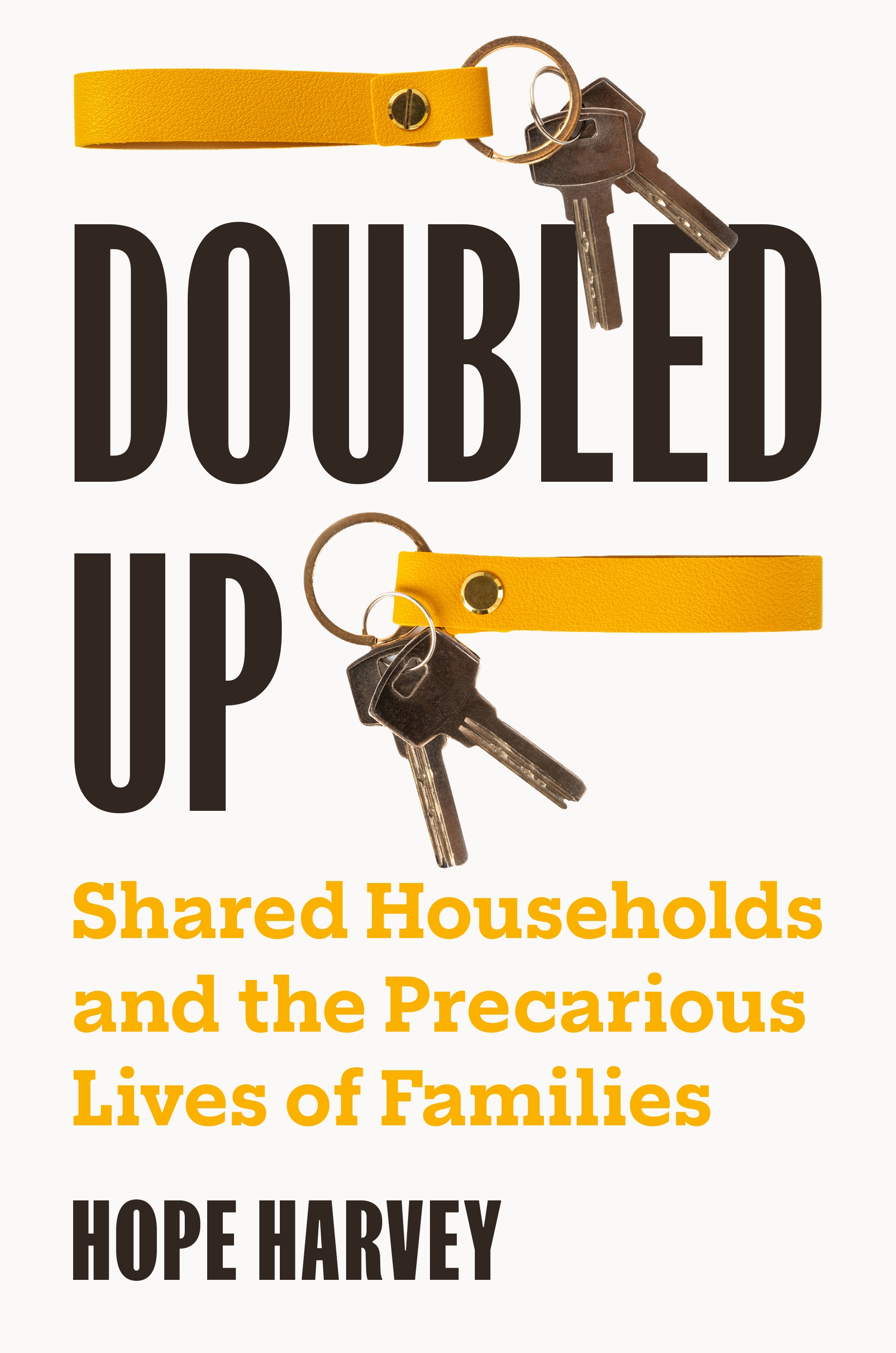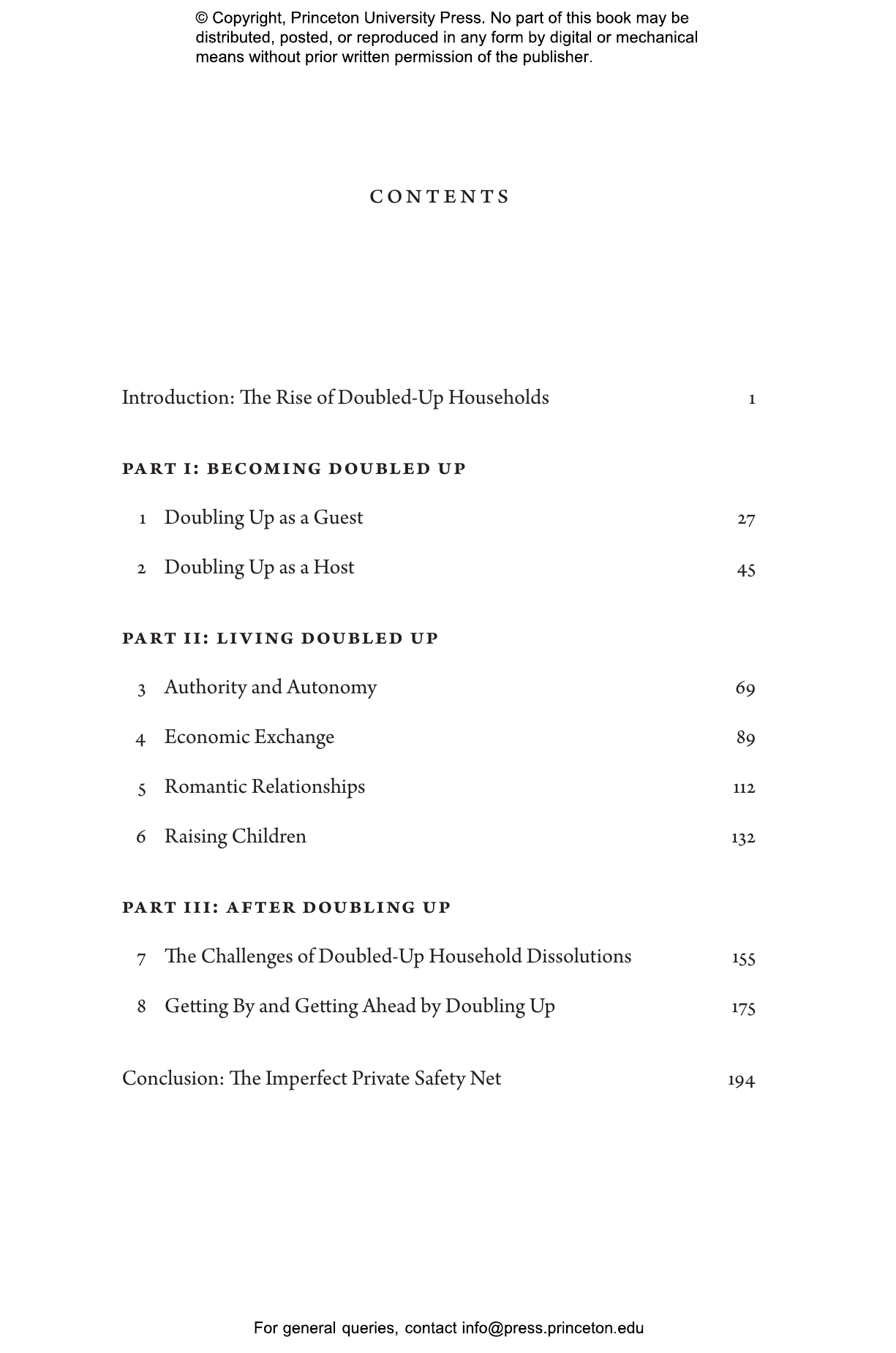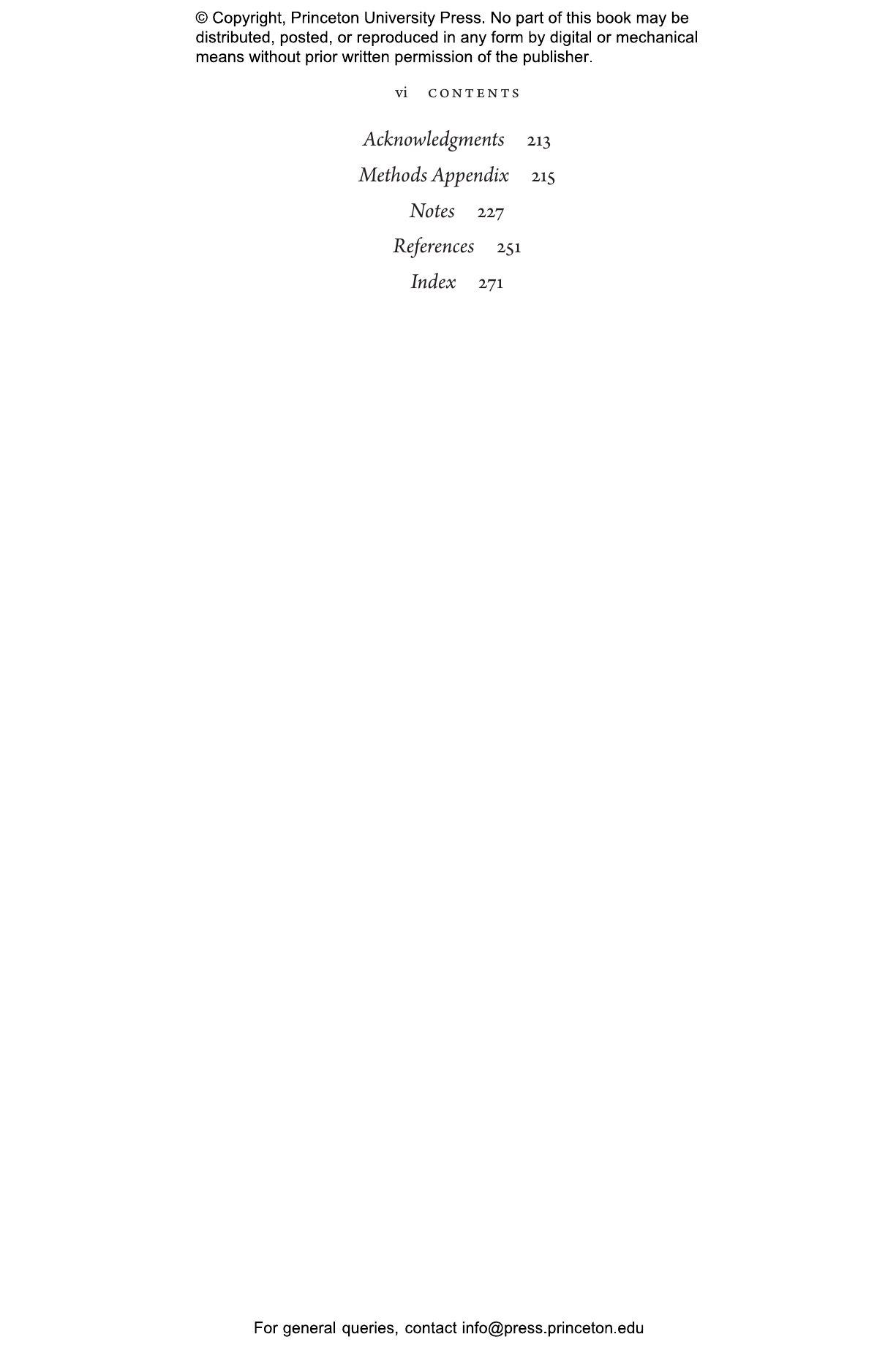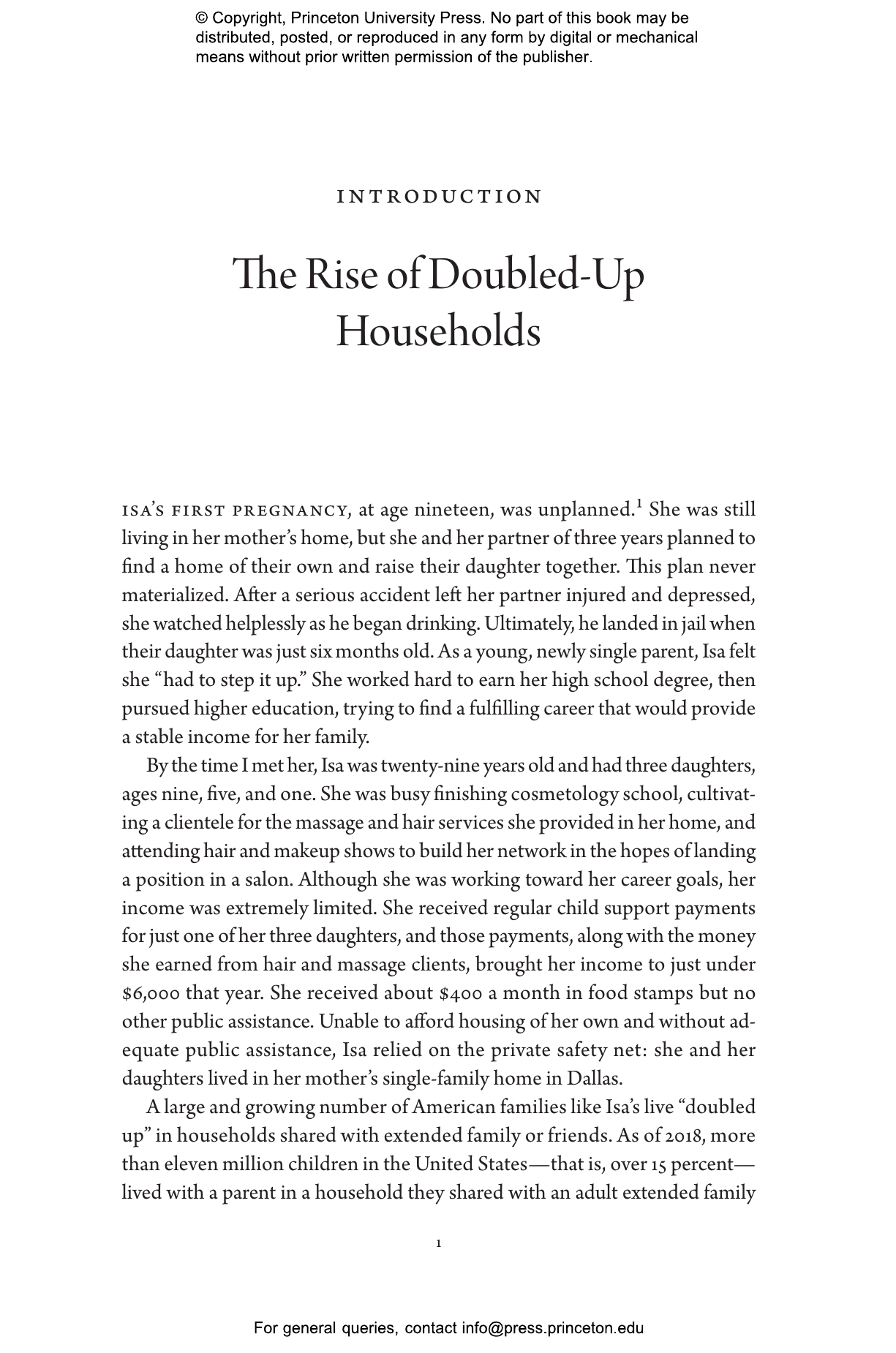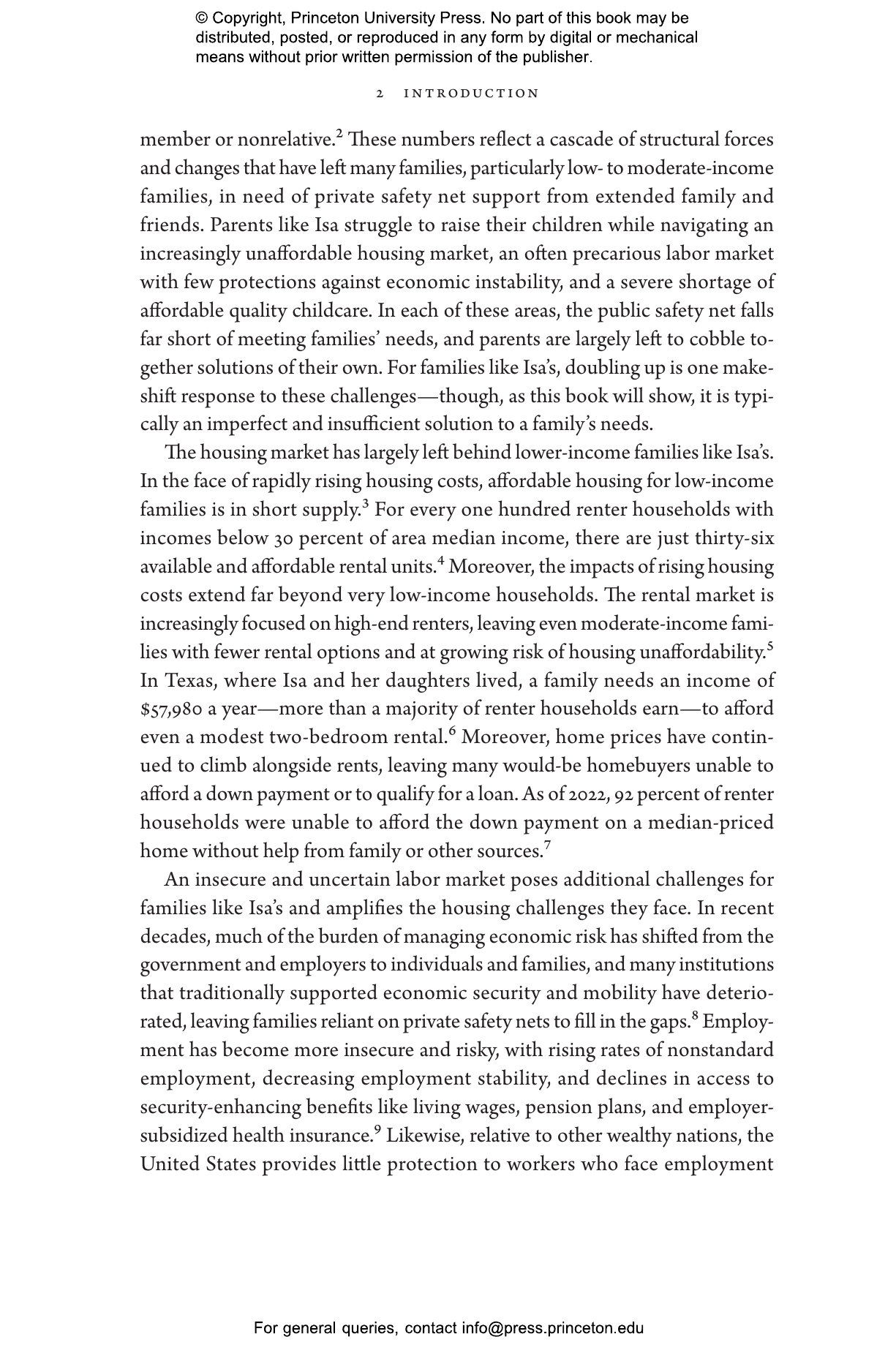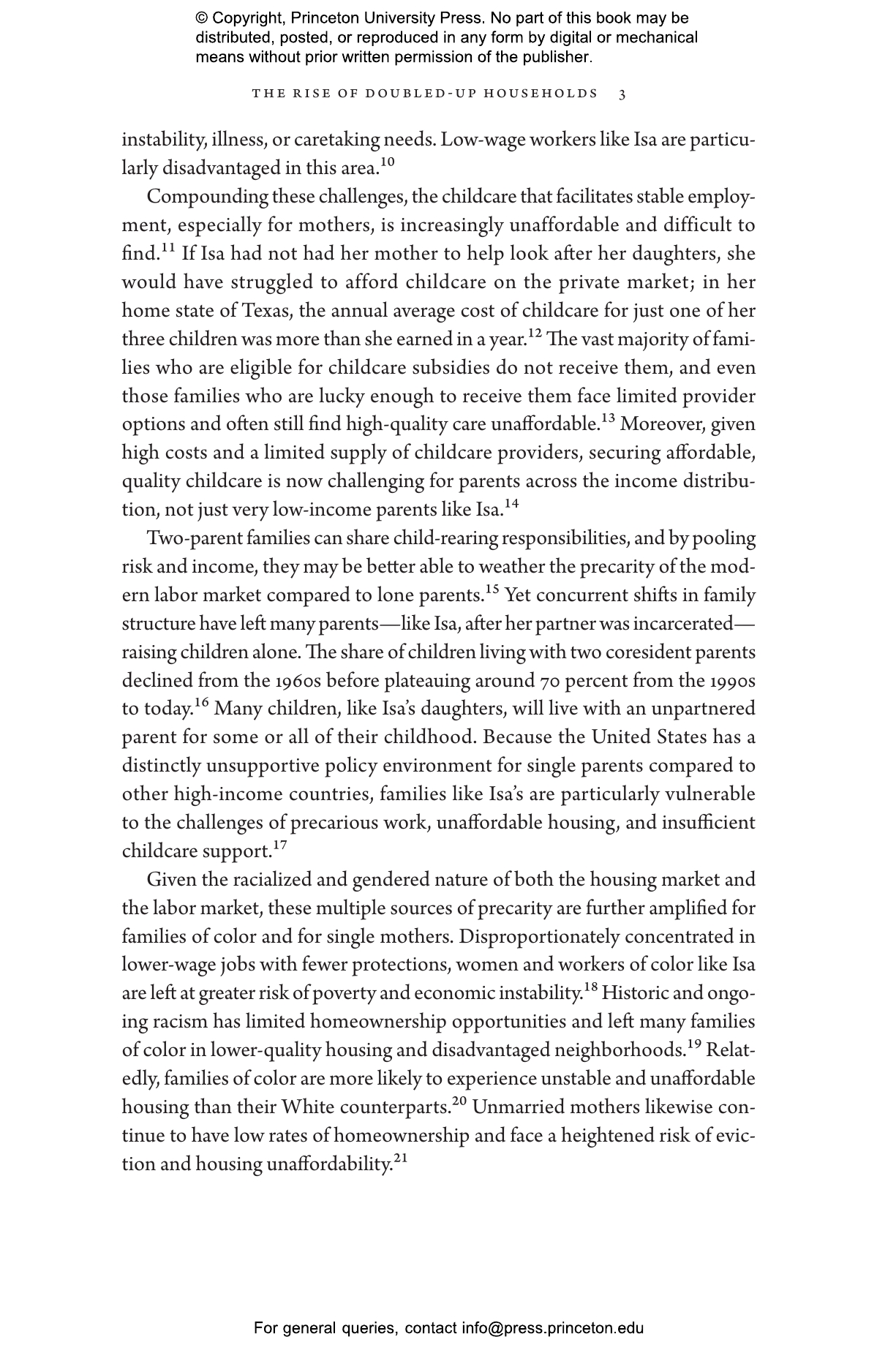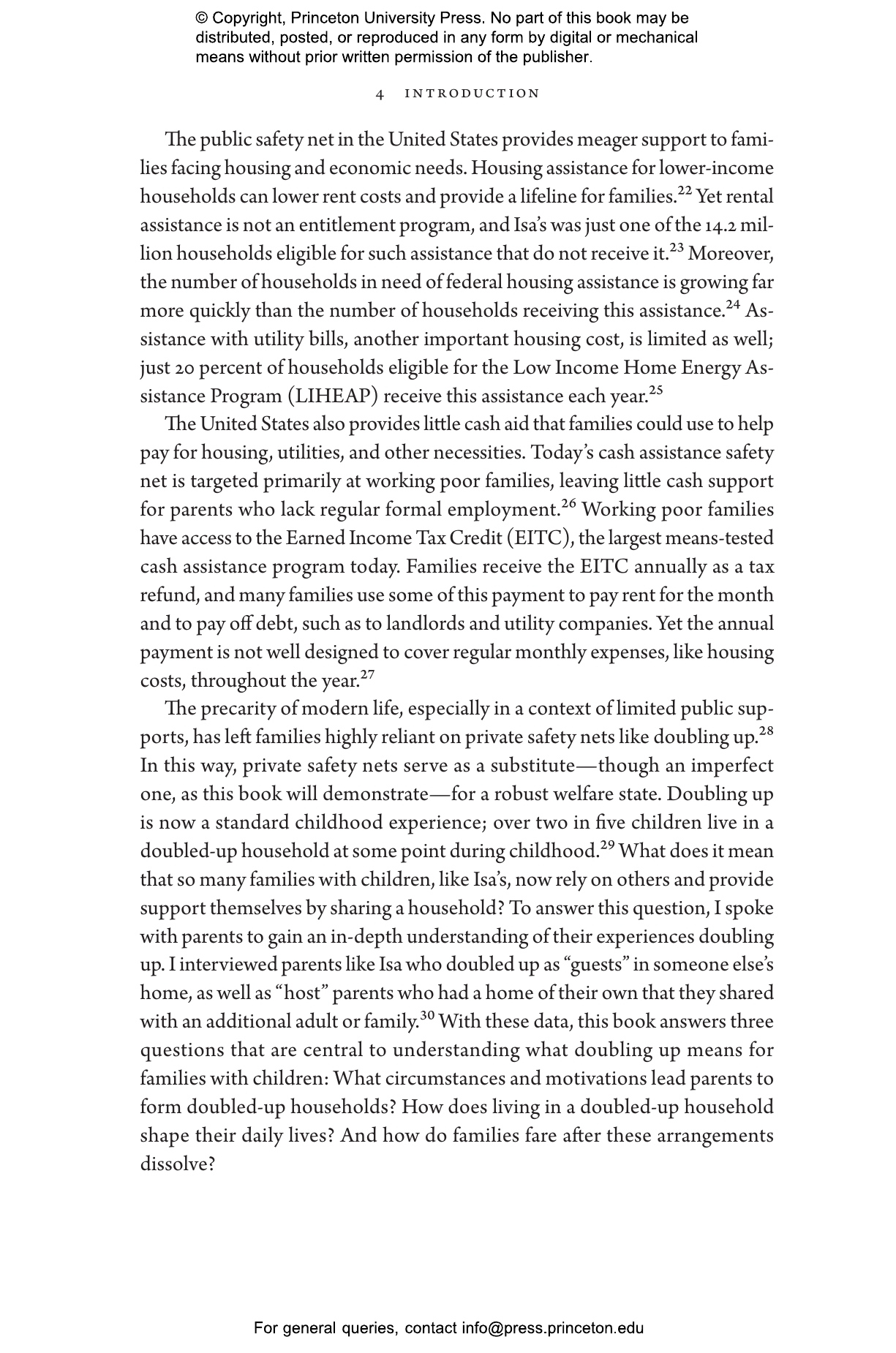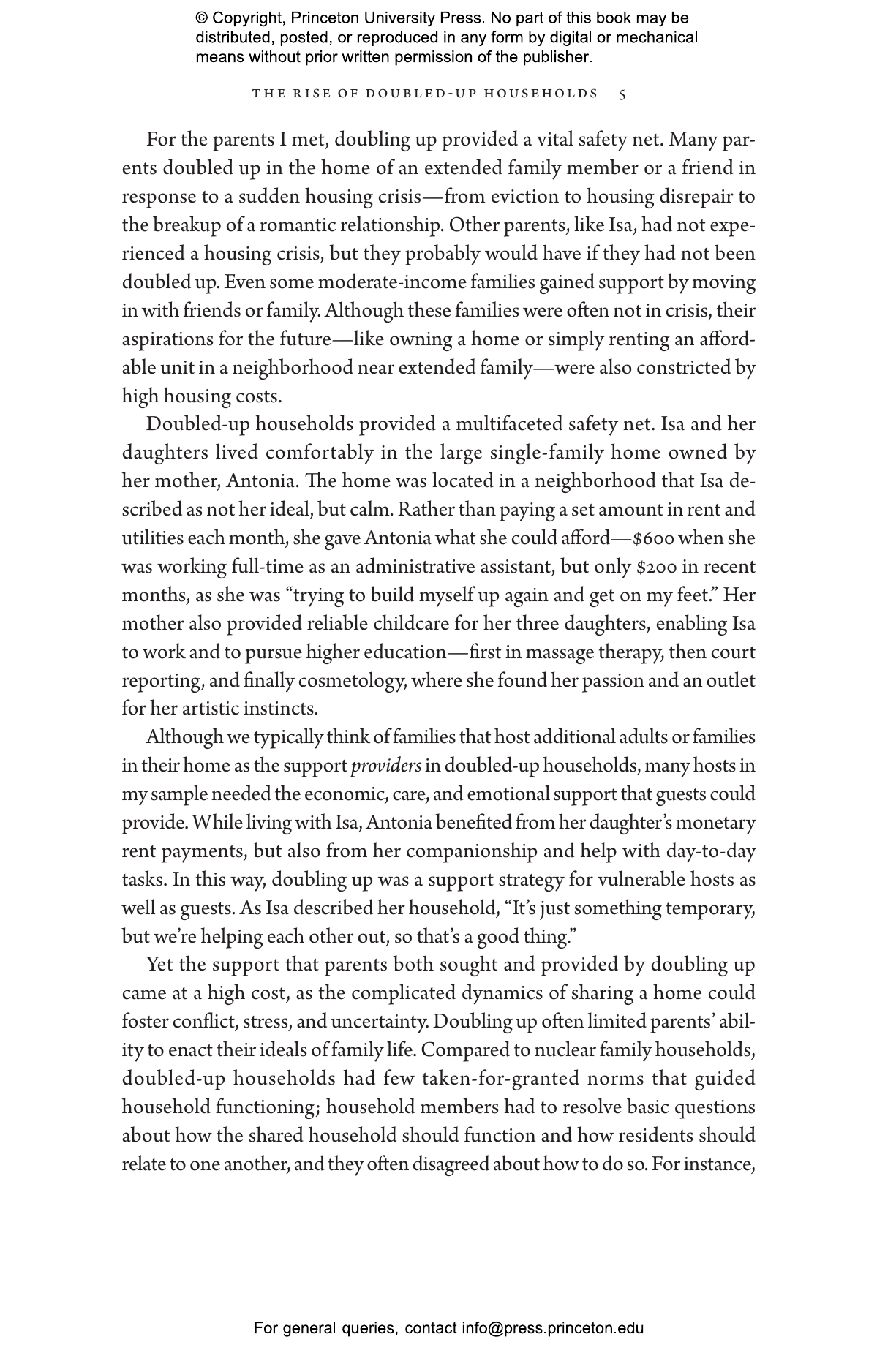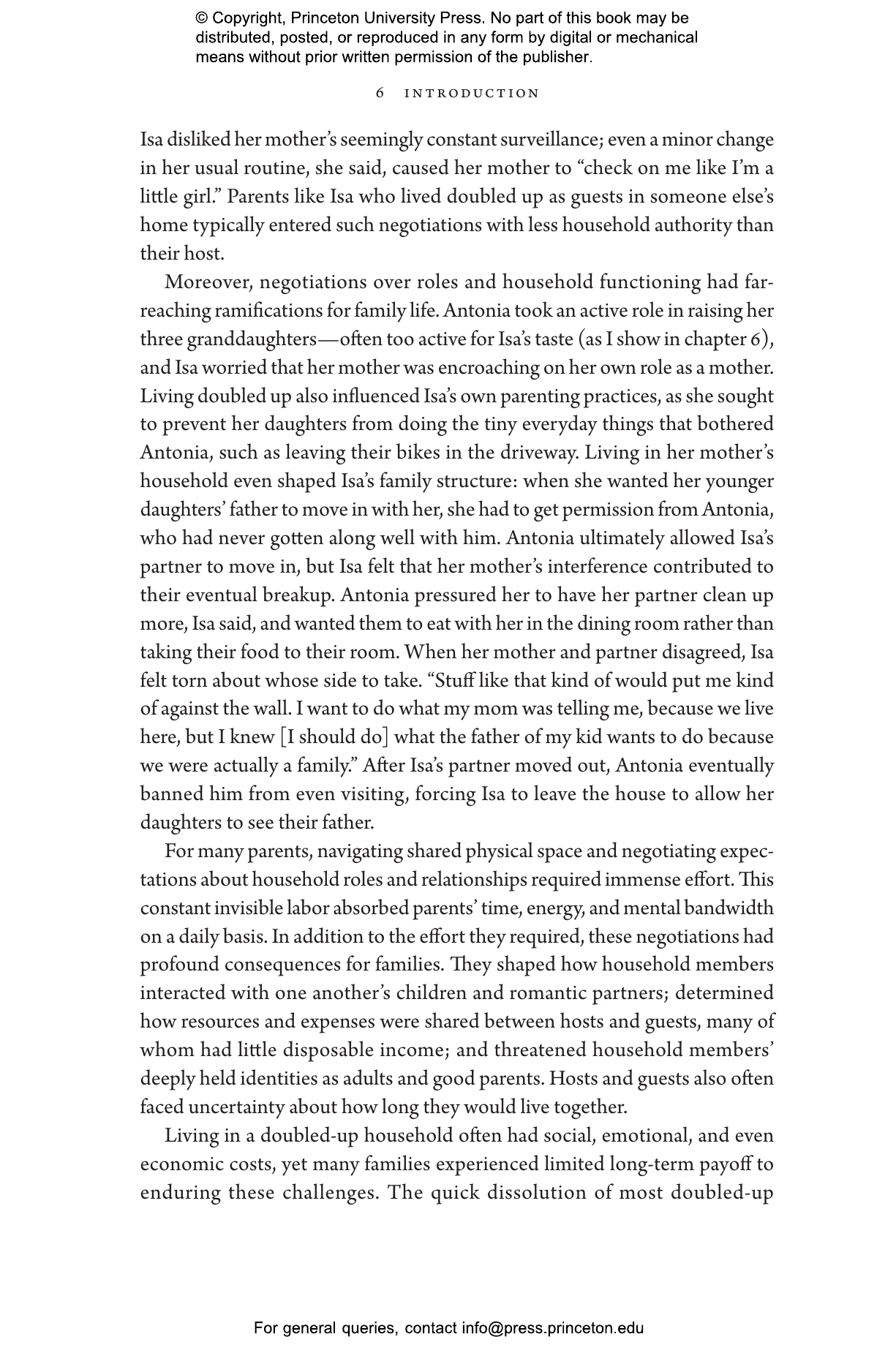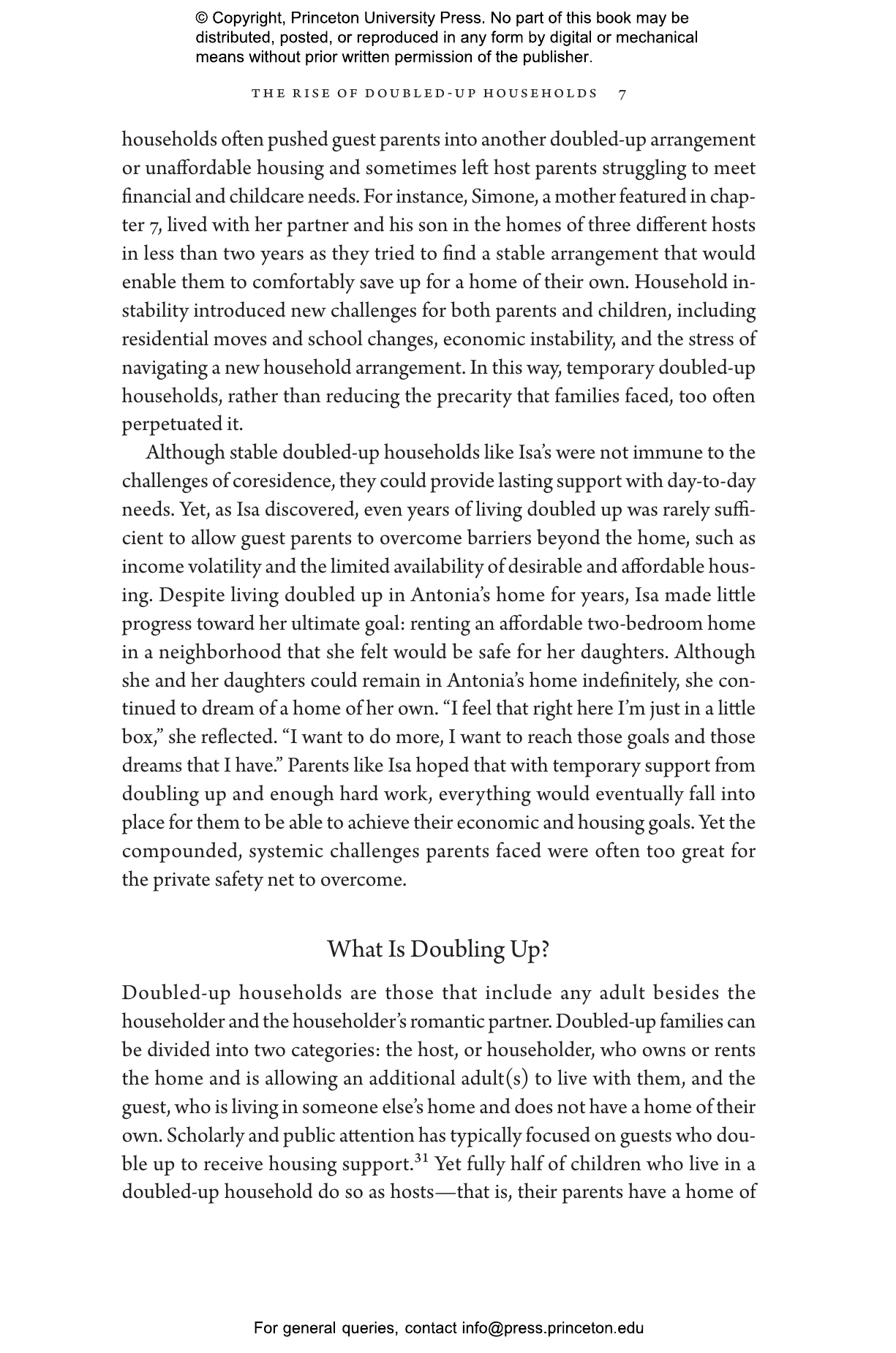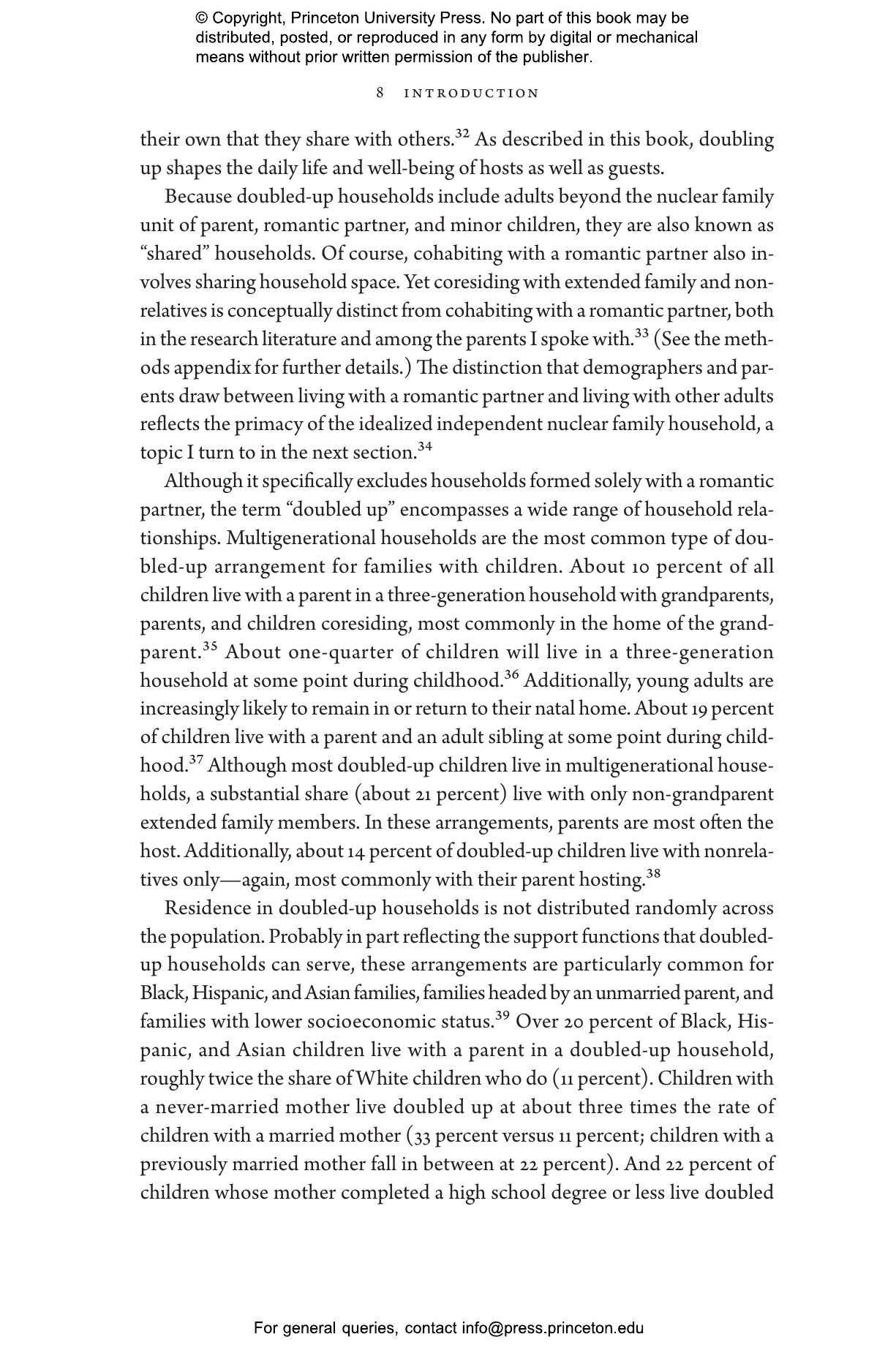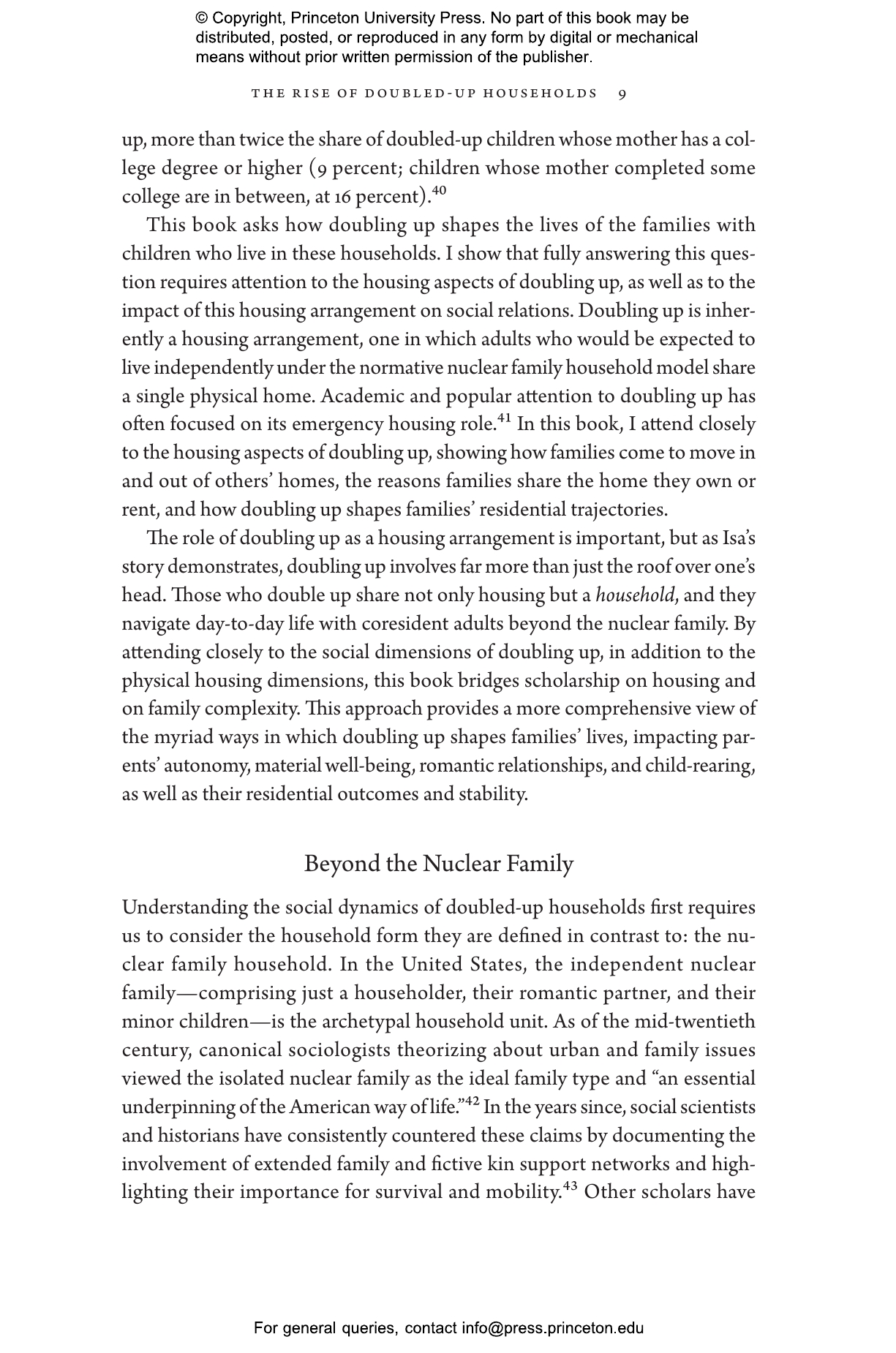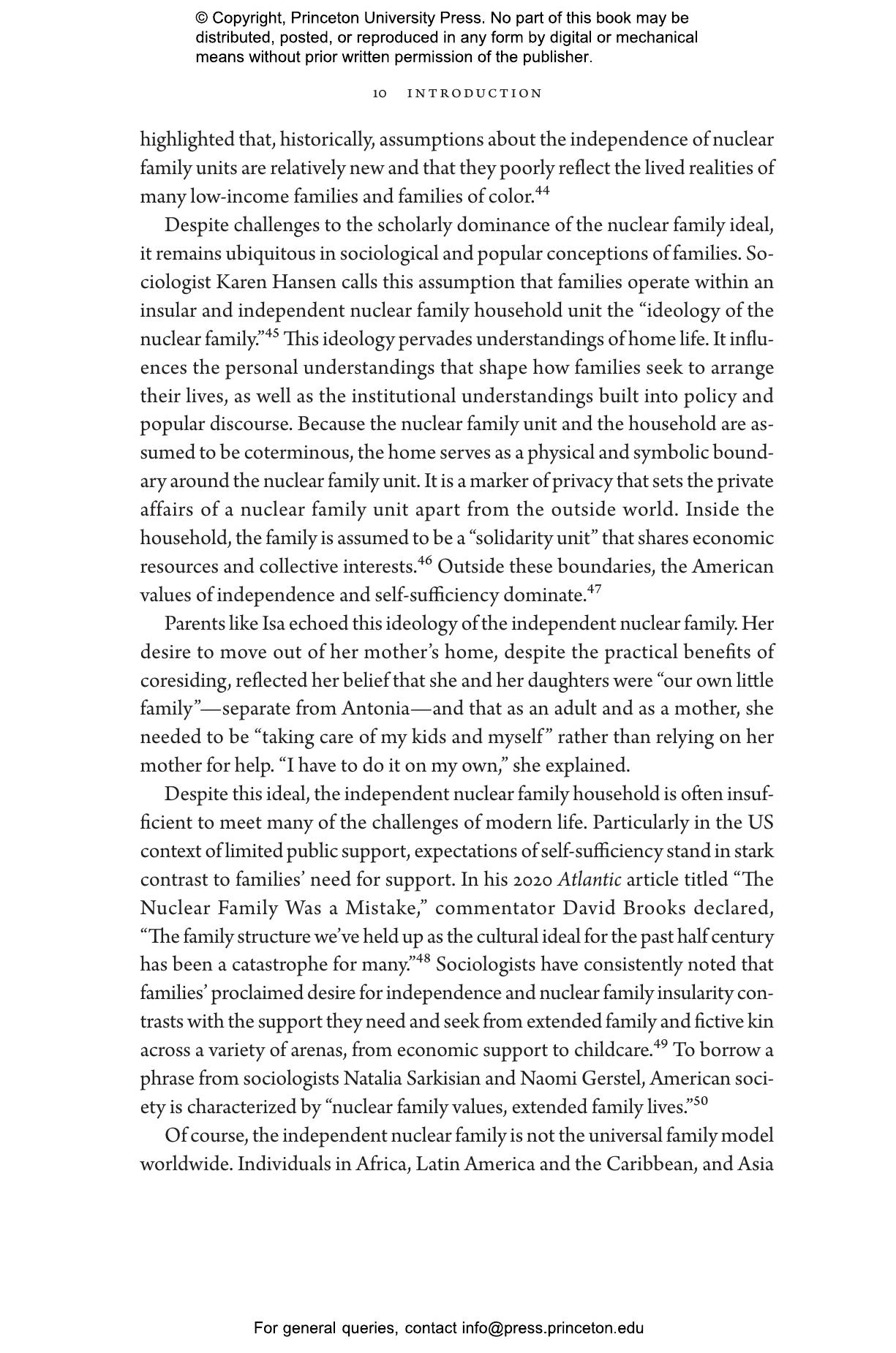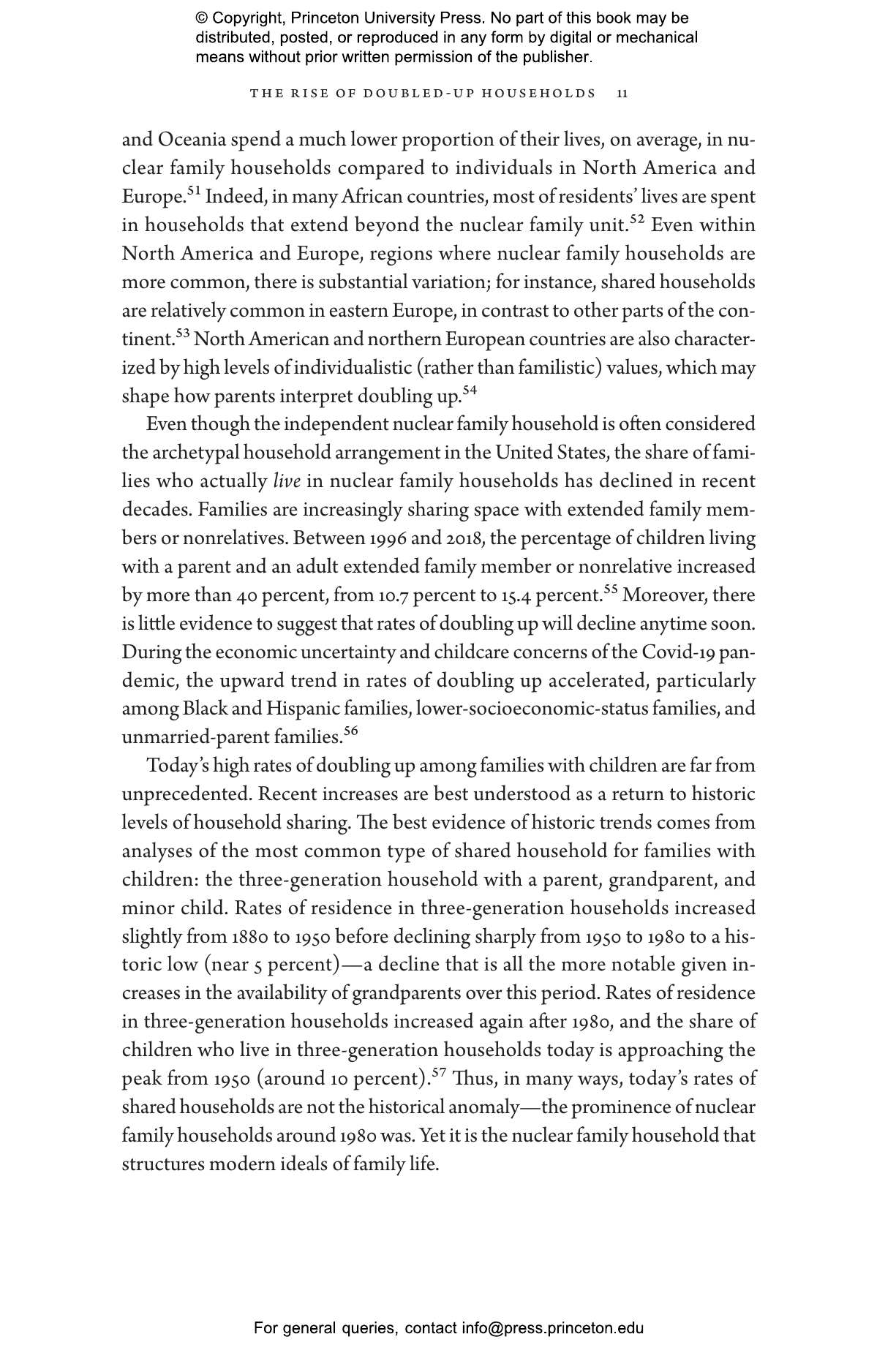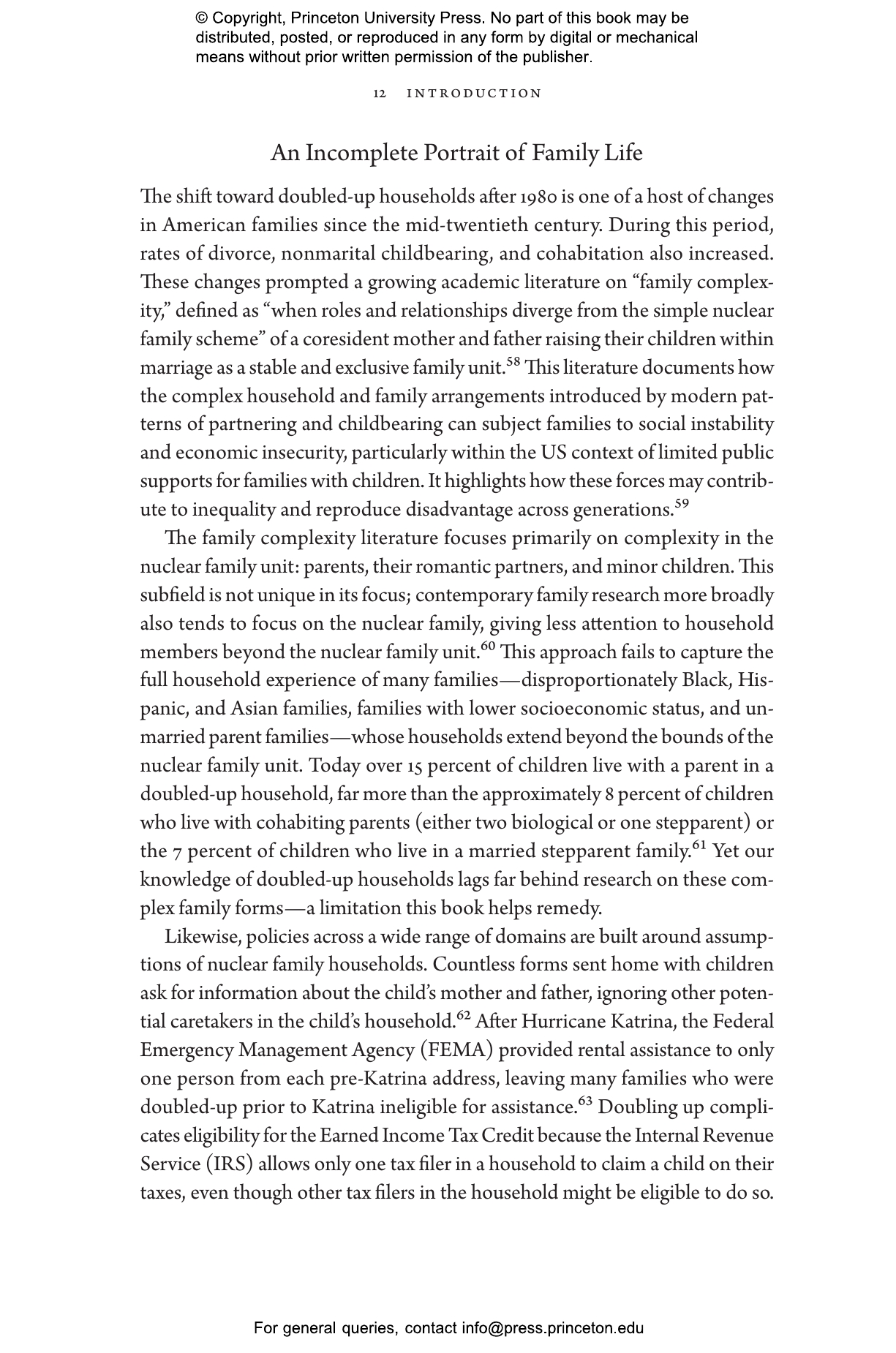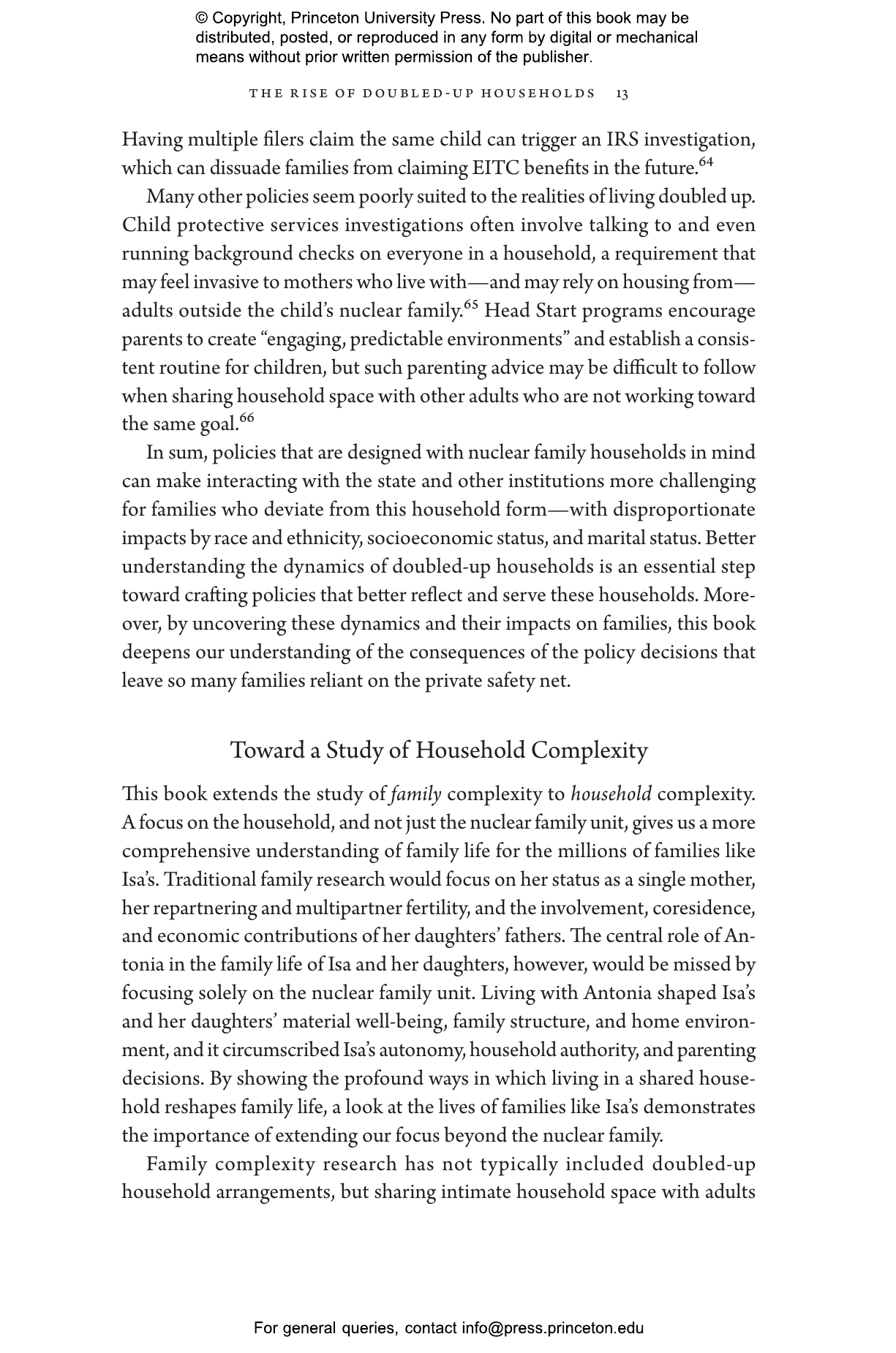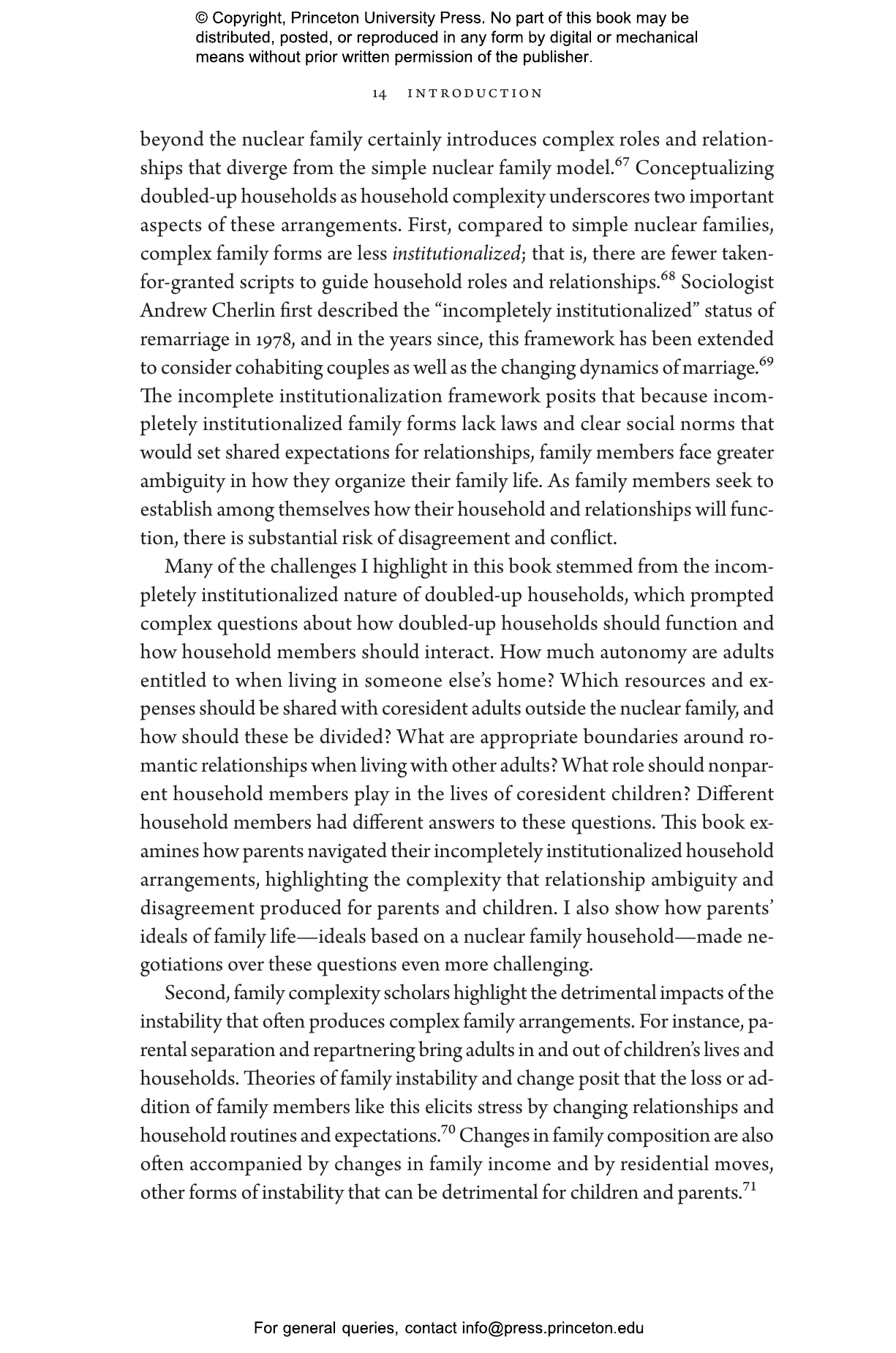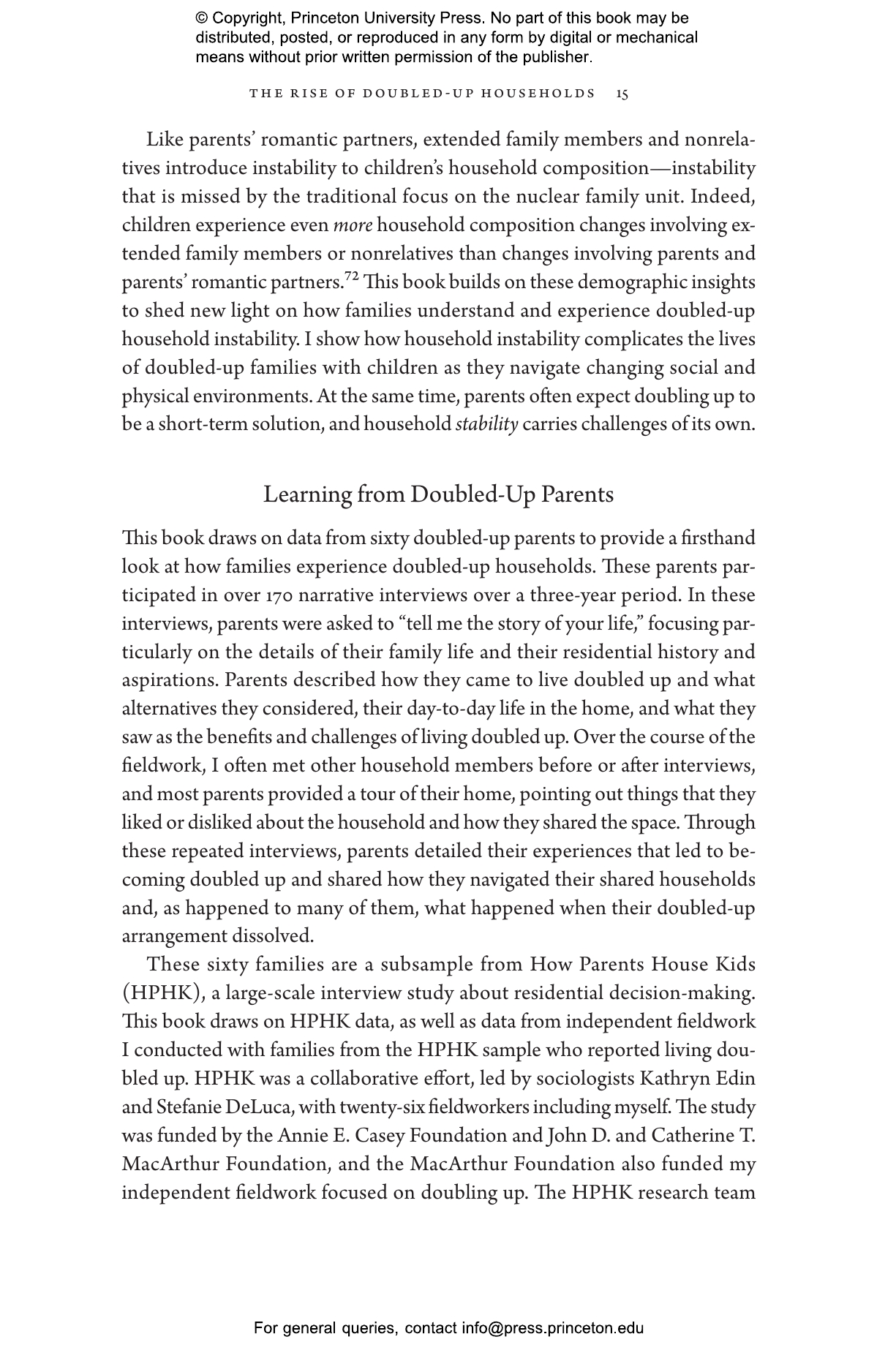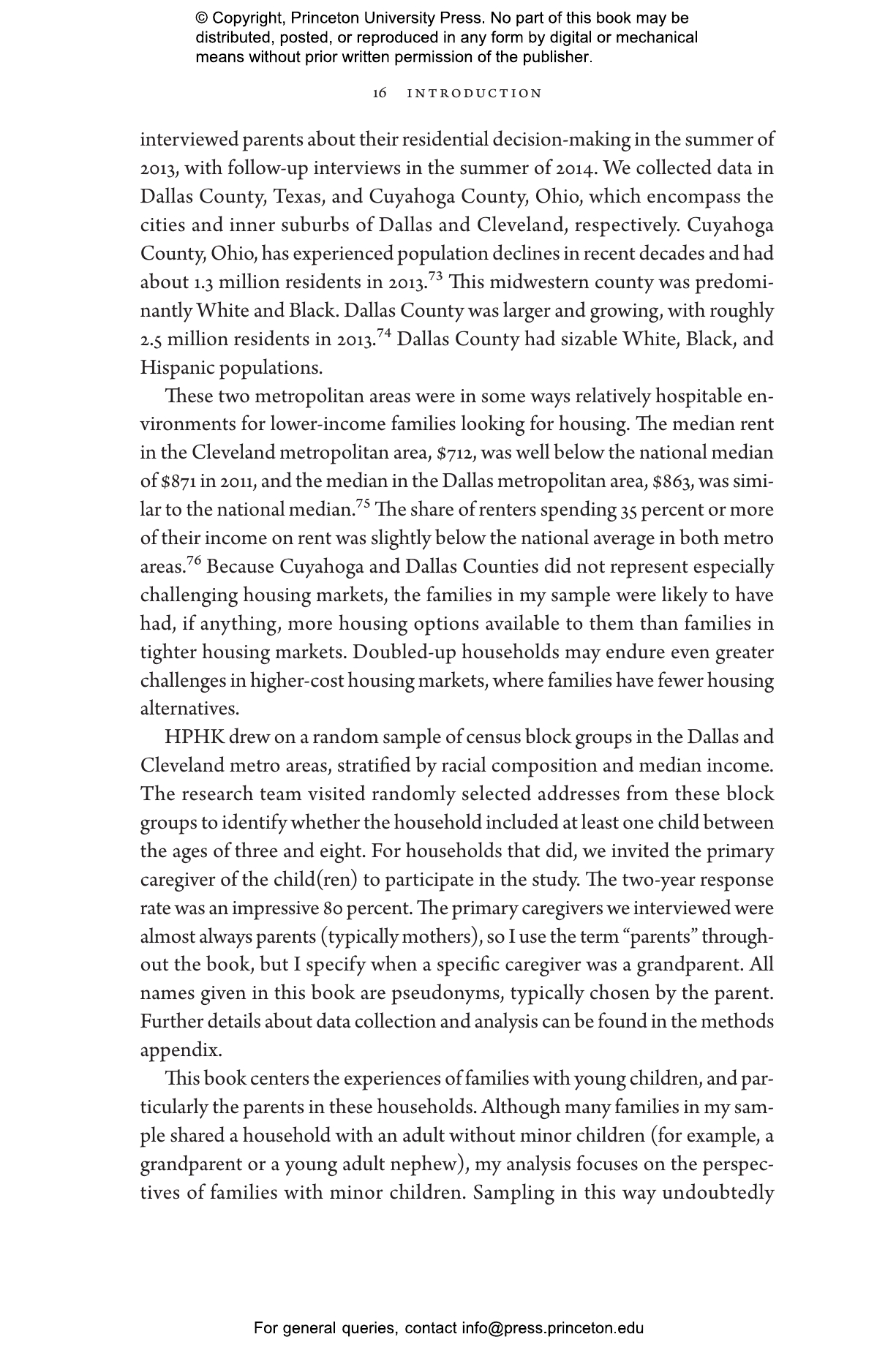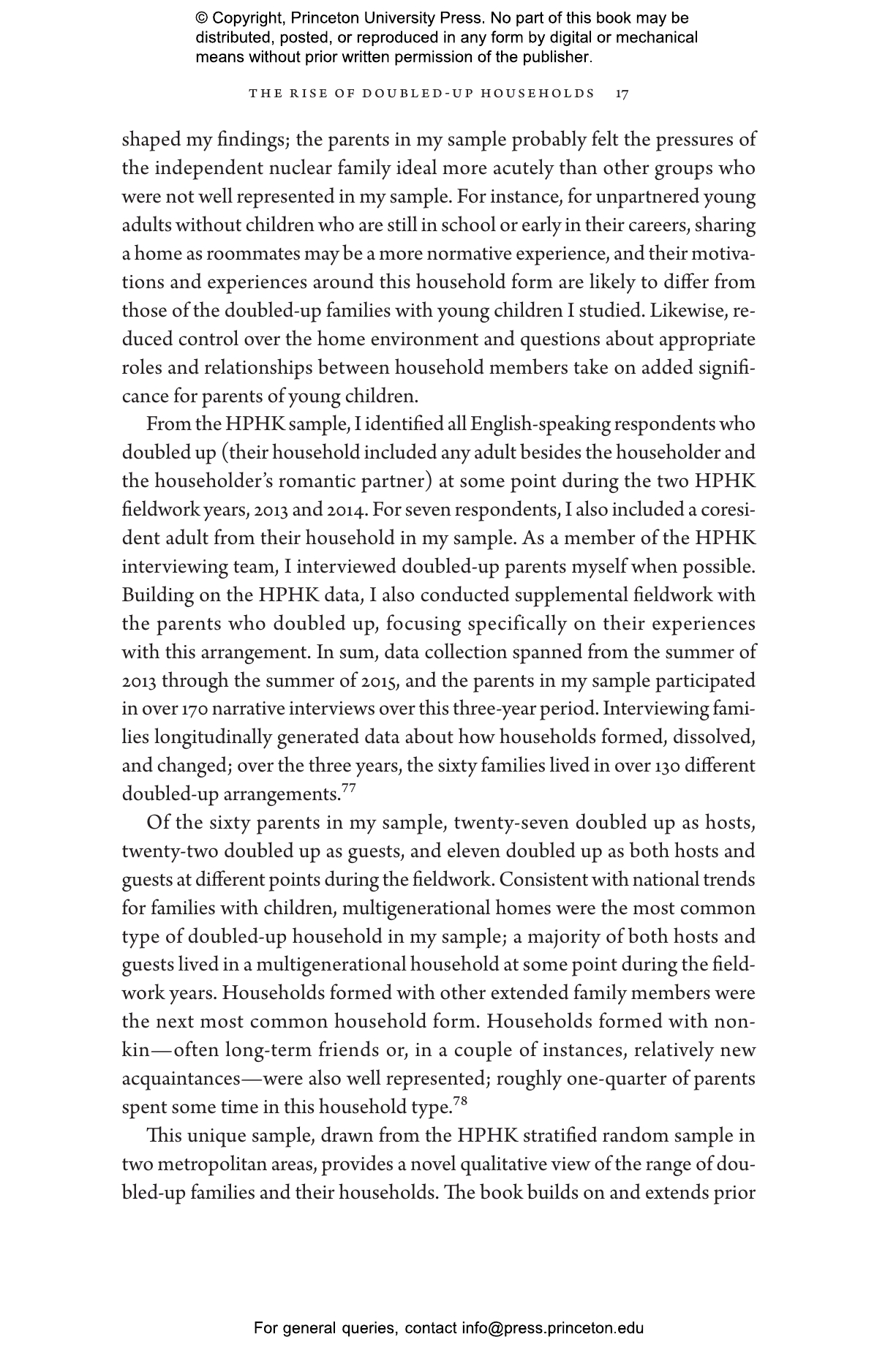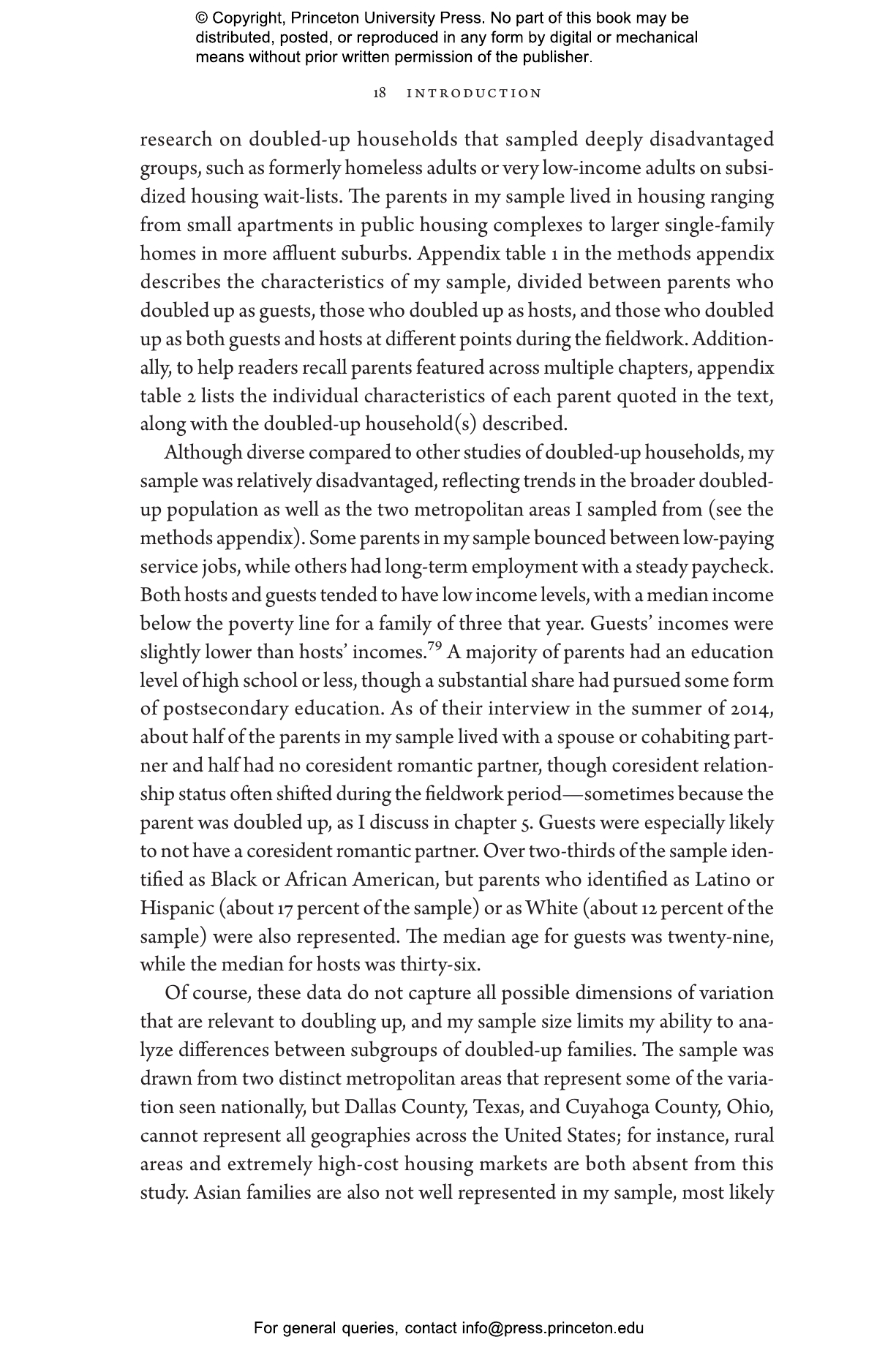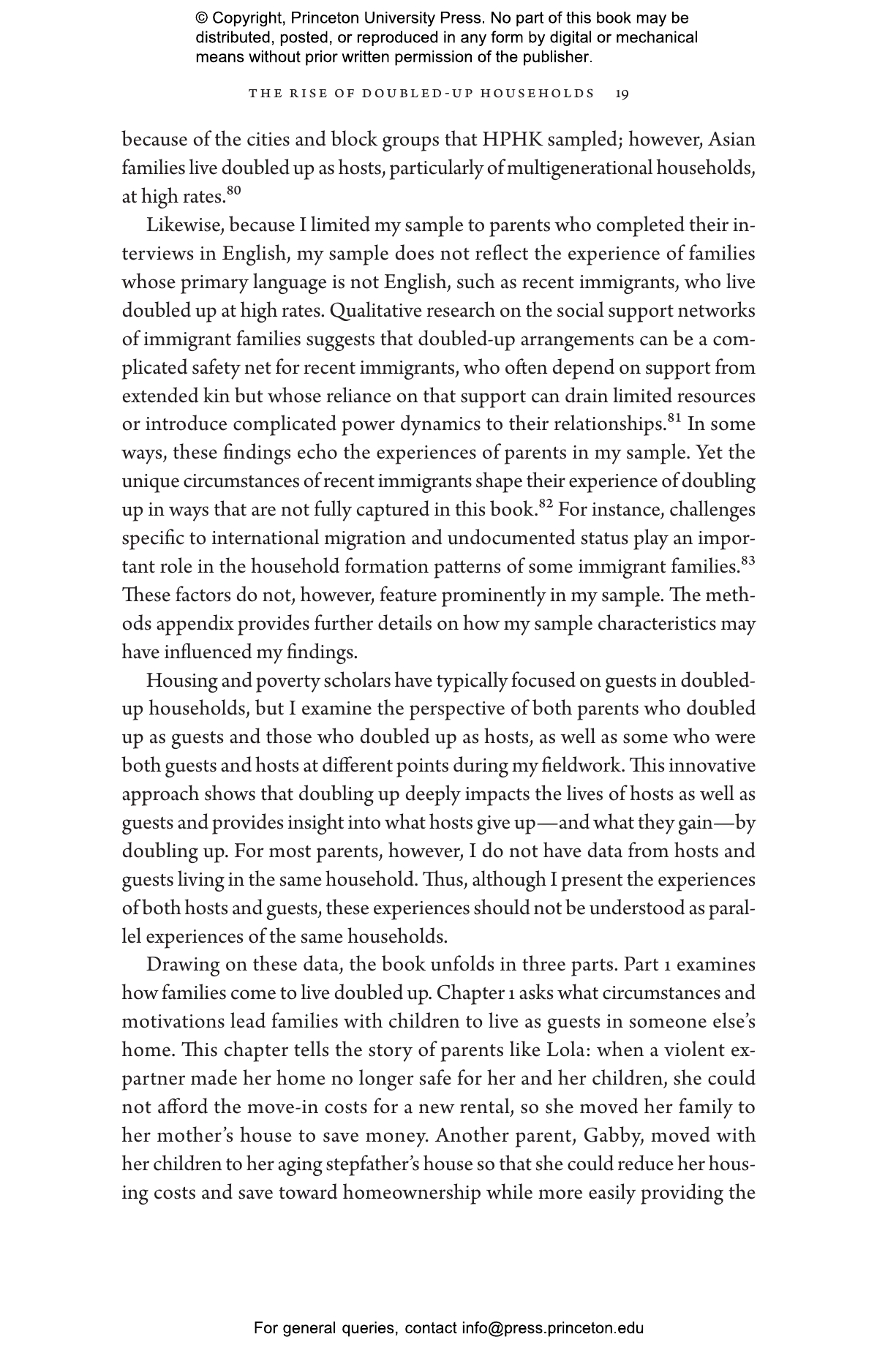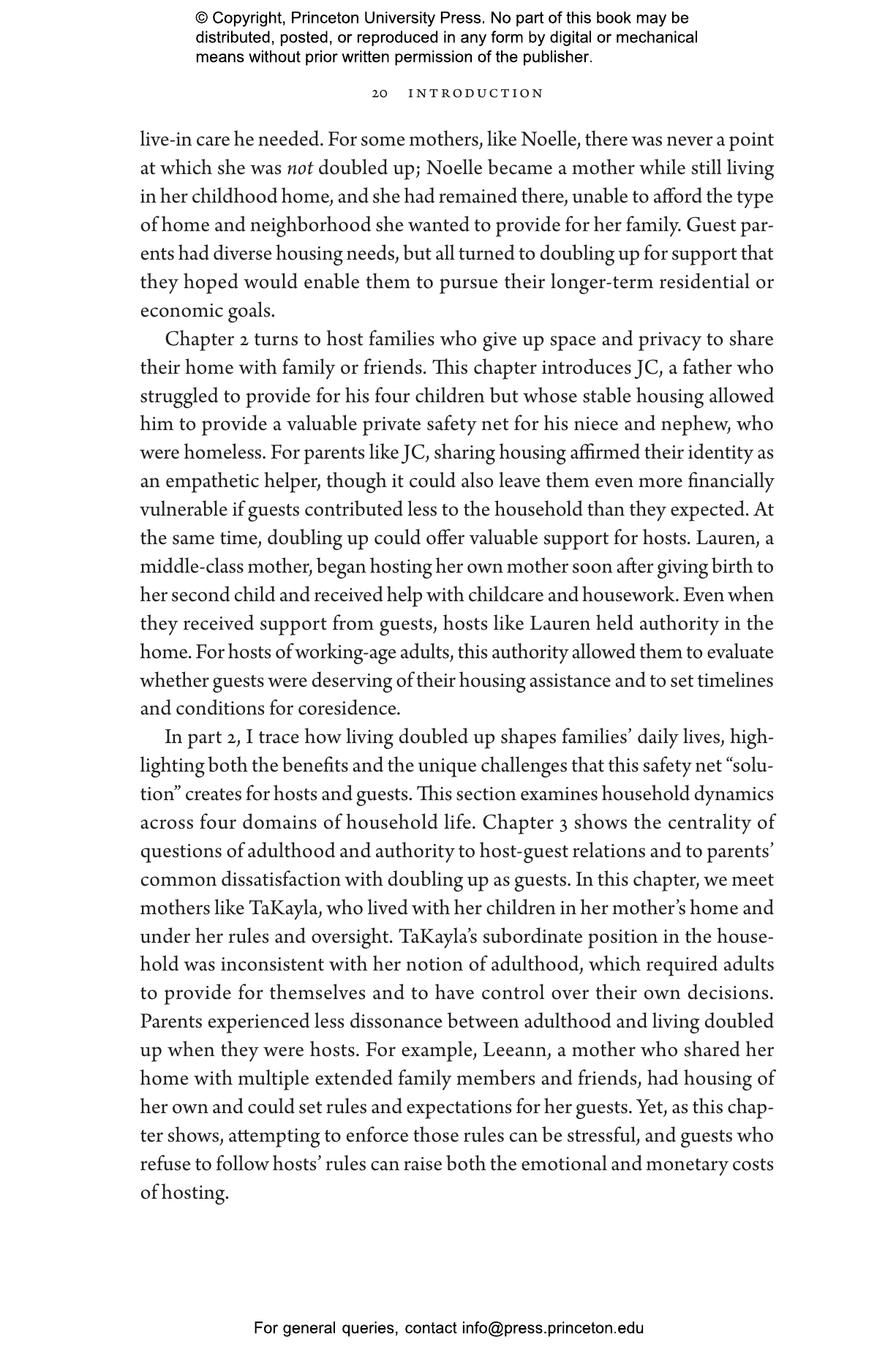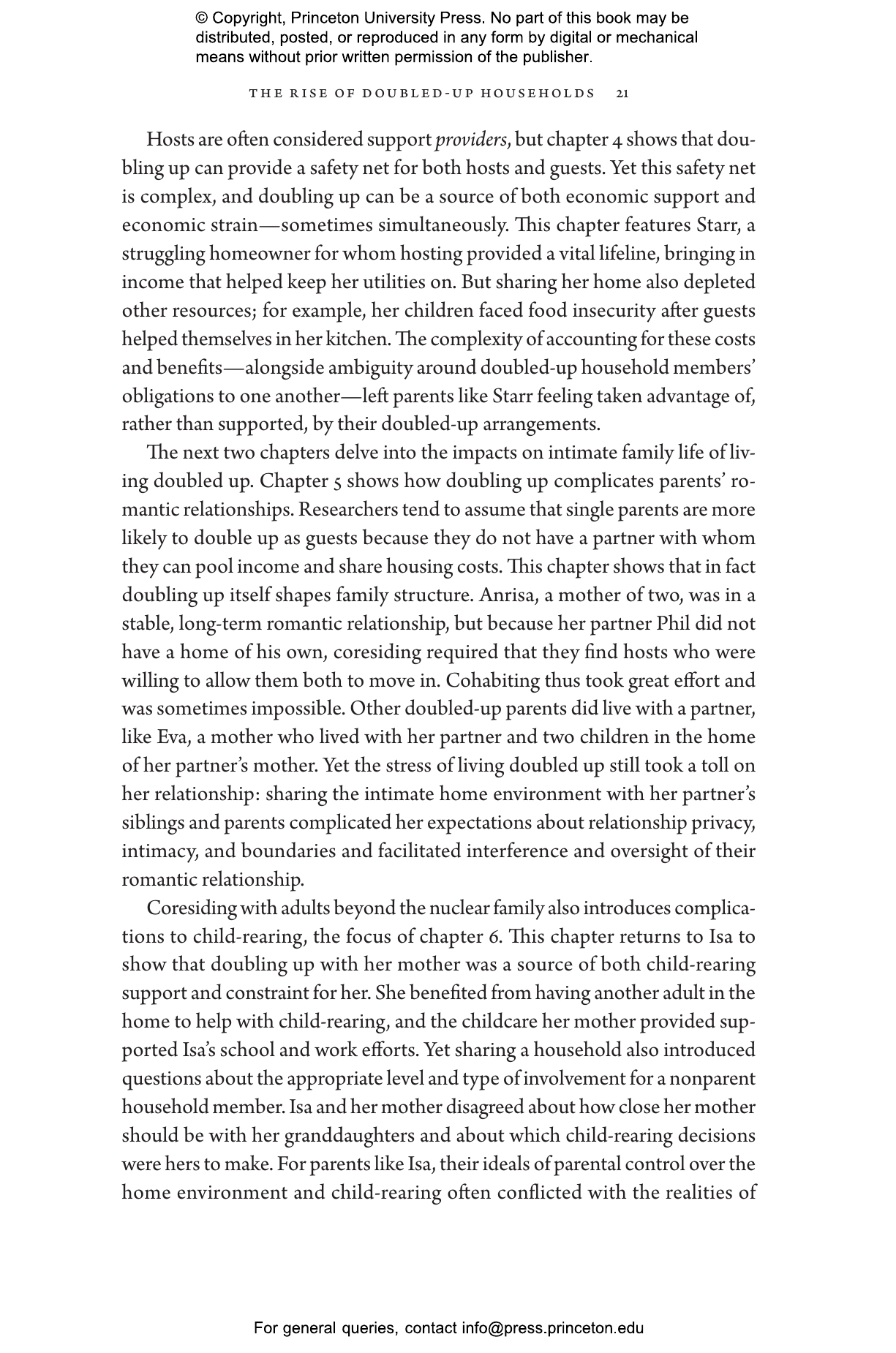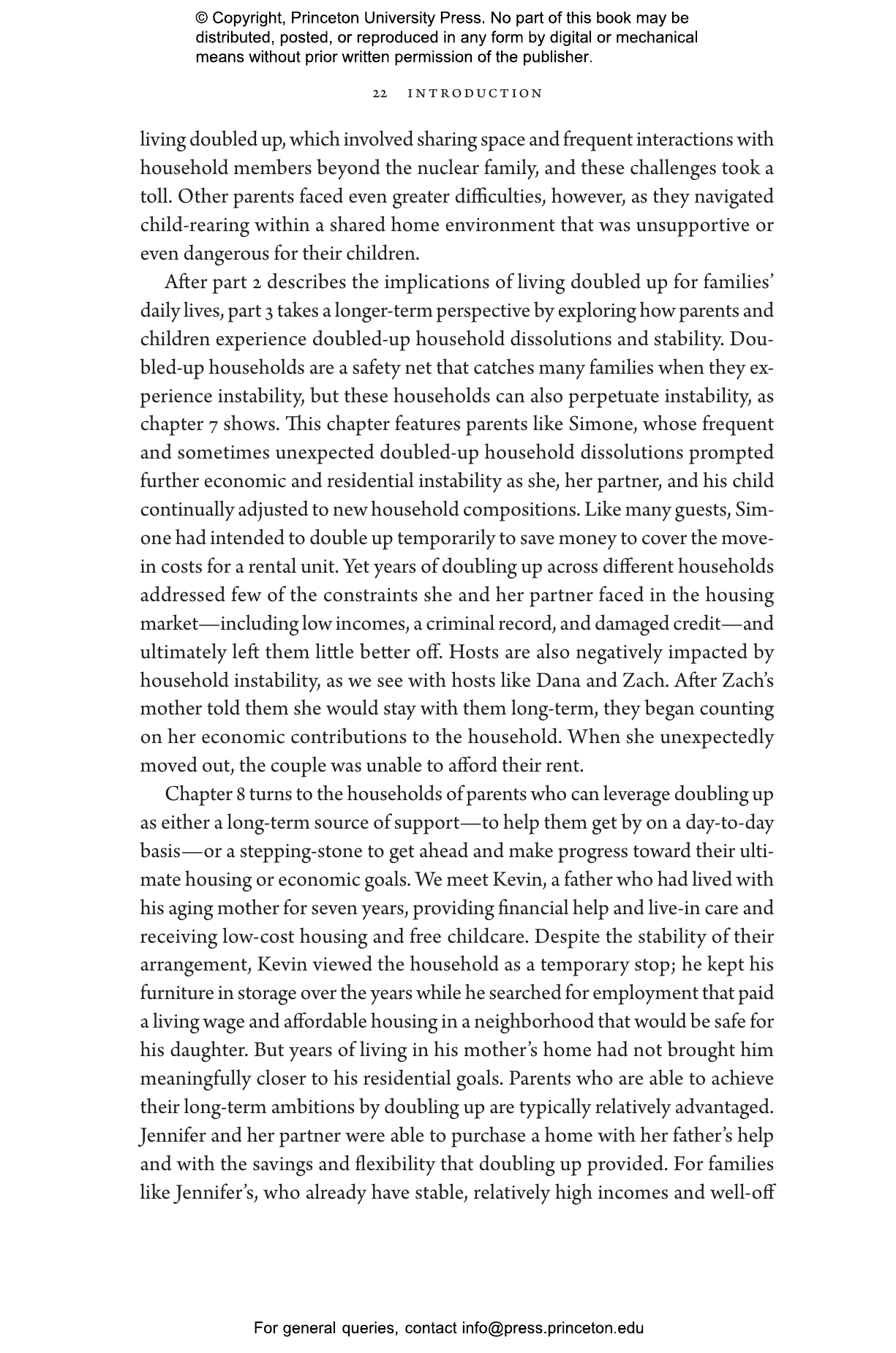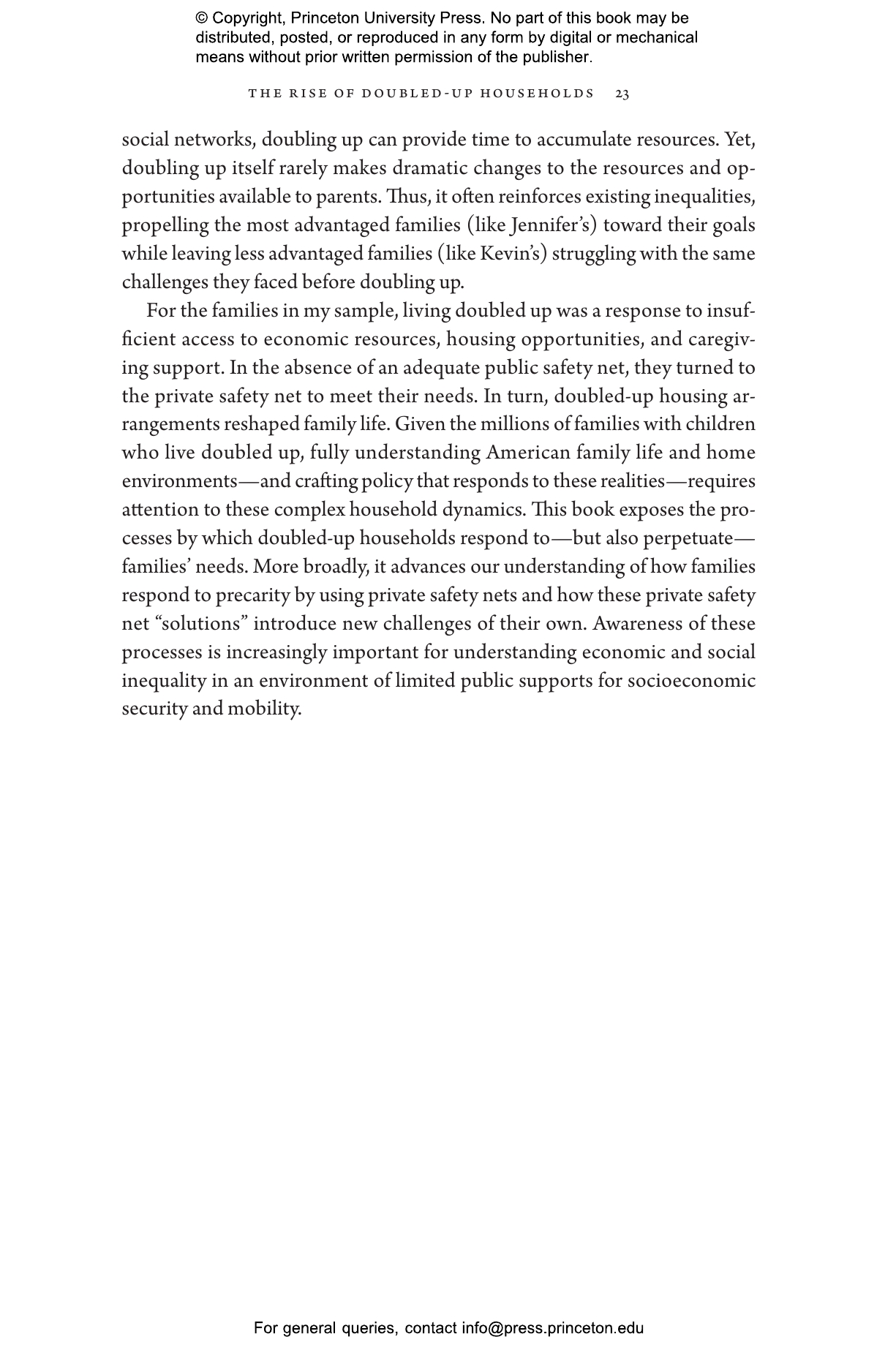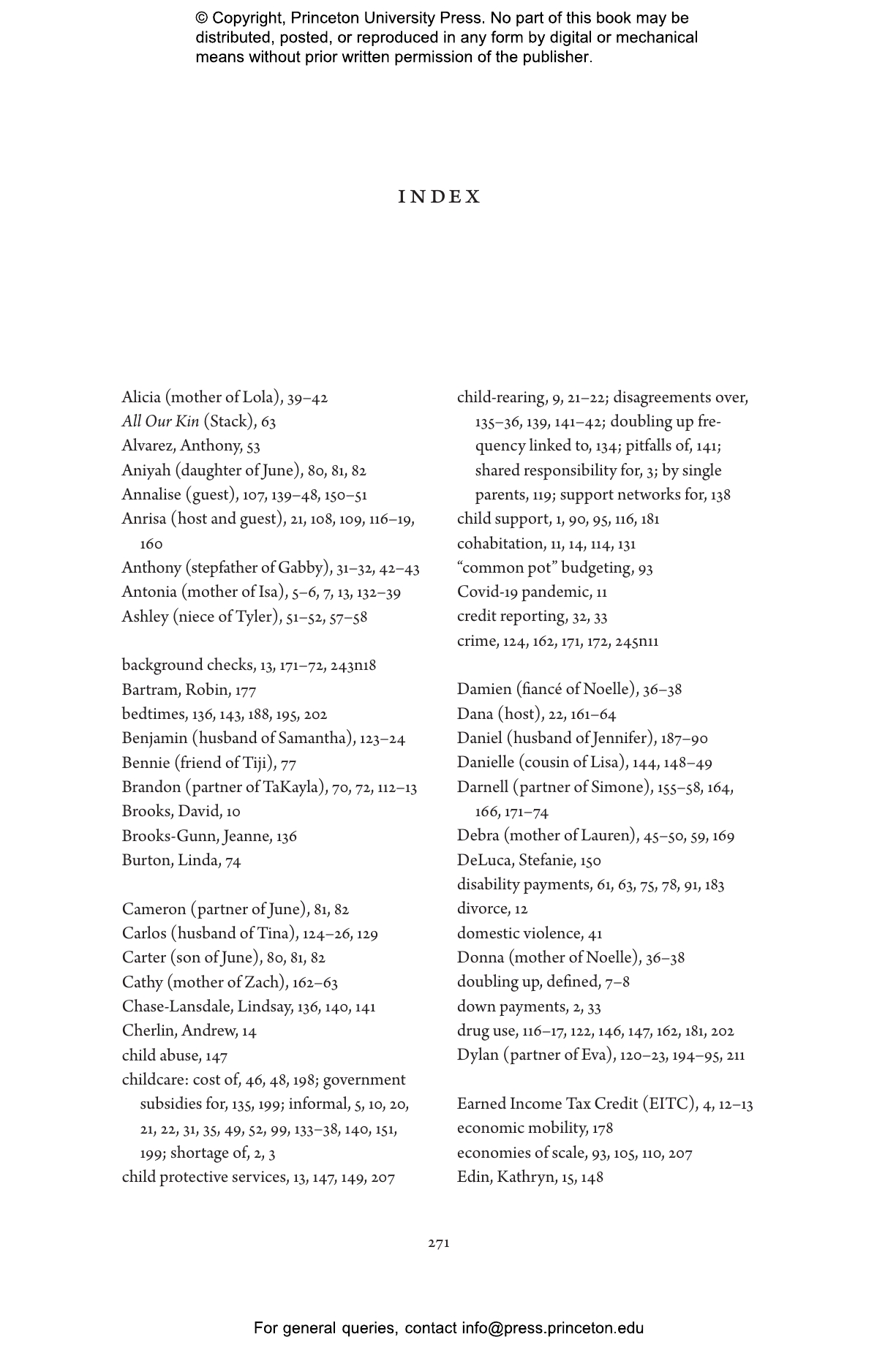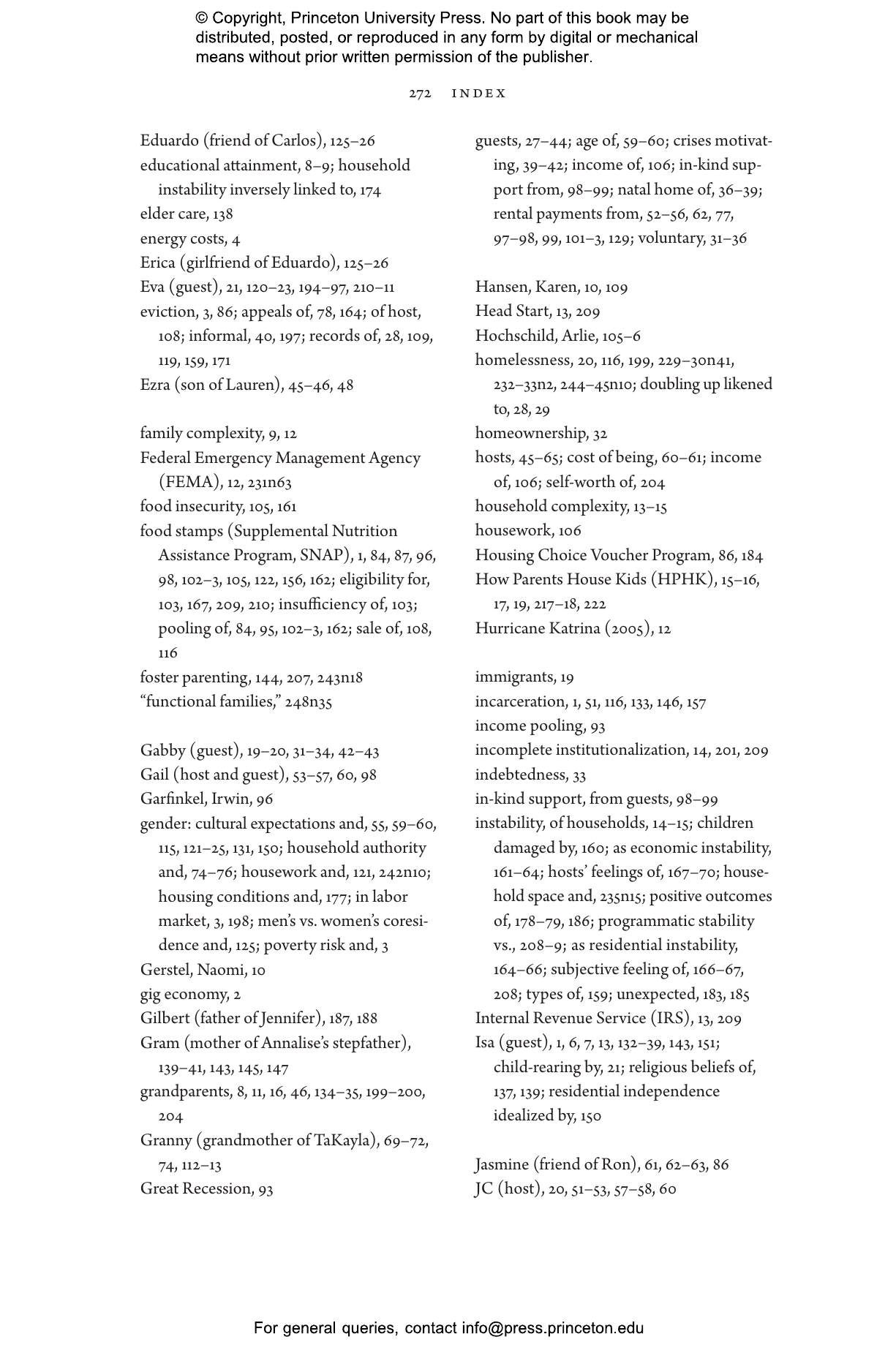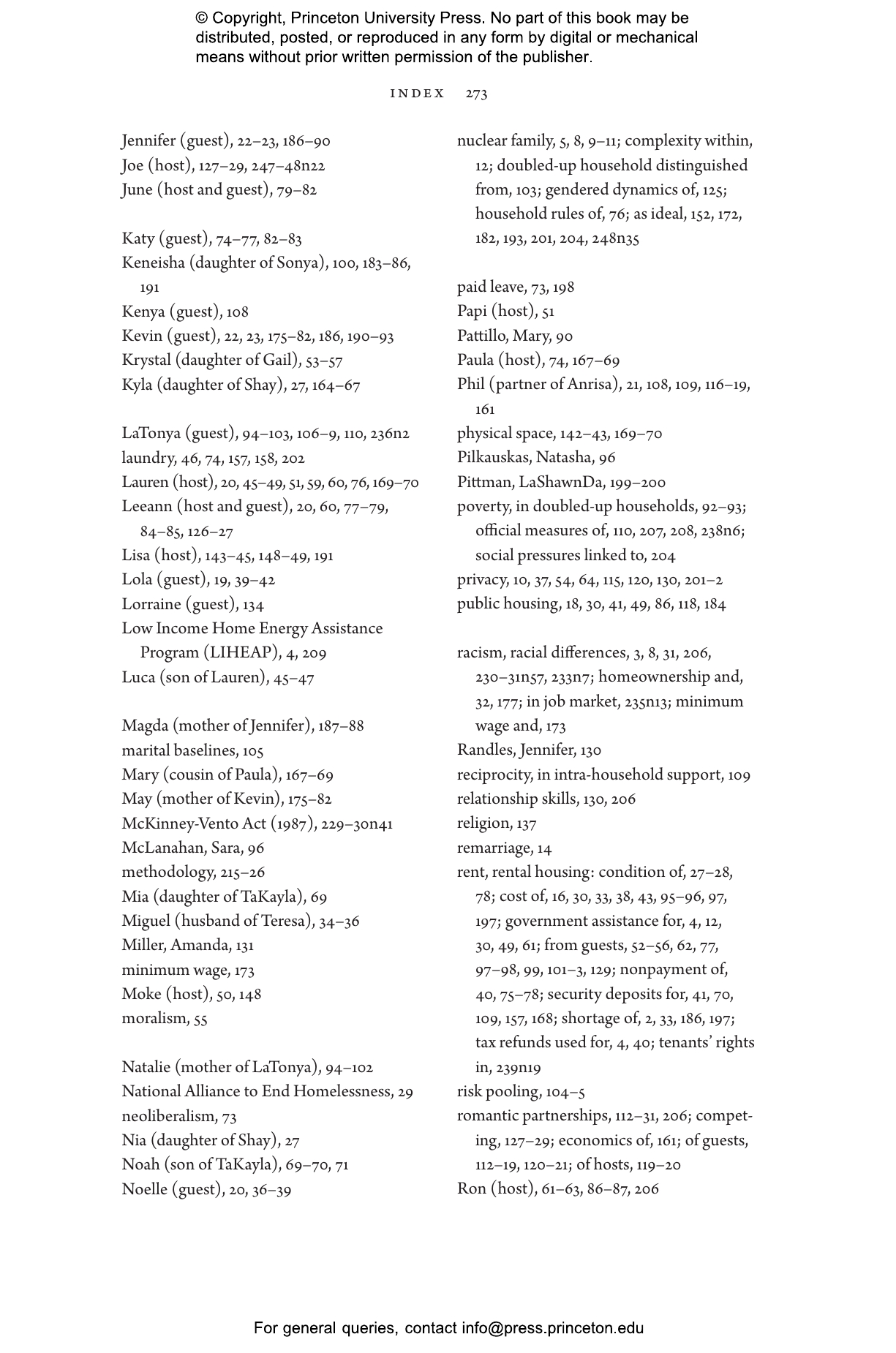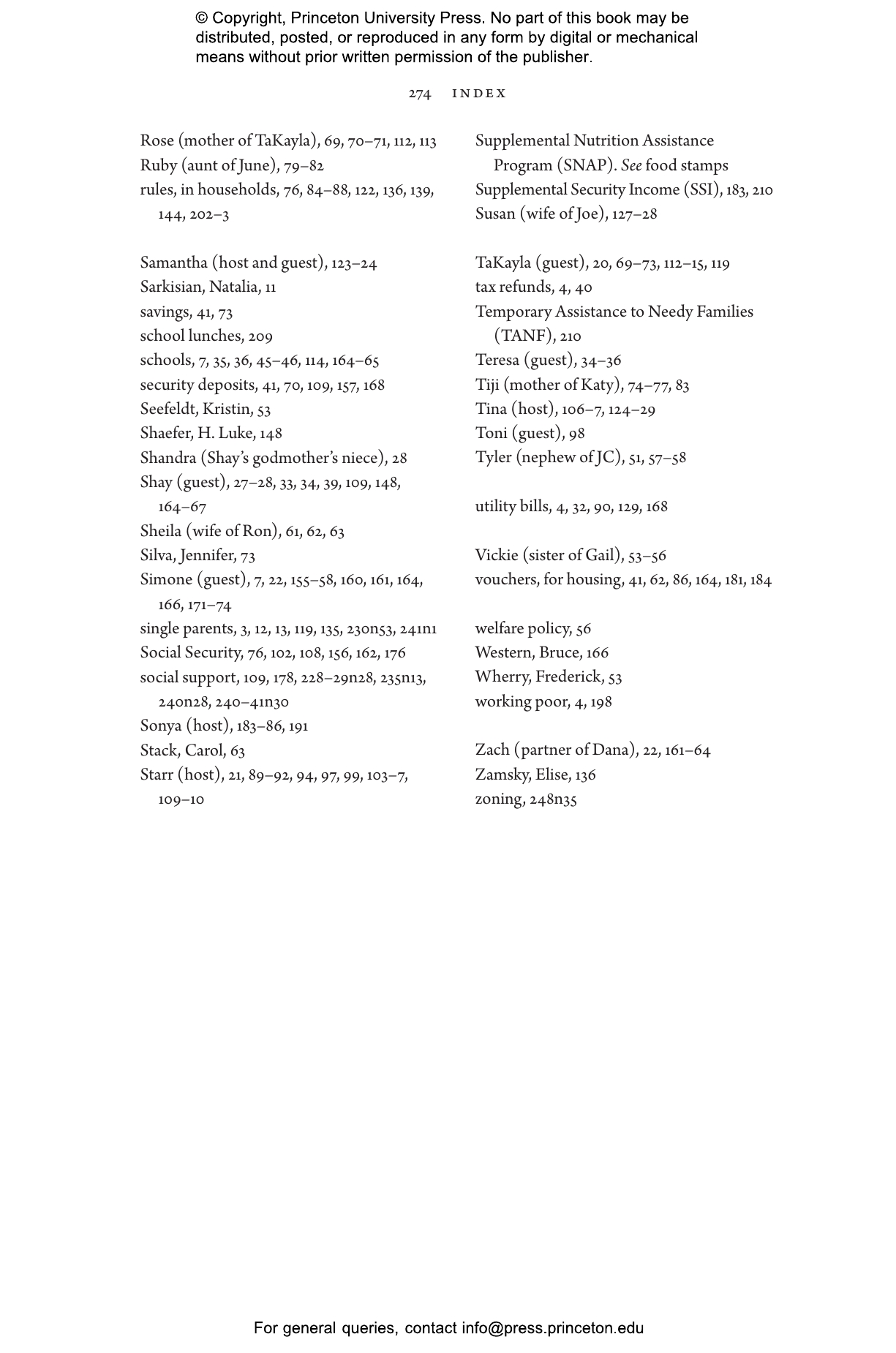More than fifteen percent of US children鈥攐ver eleven million鈥攍ive in doubled-up households, sharing space with extended family or friends. These households are even more common among low-income families, families of color, and single-parent families, functioning as a private safety net for many in a country with extremely limited public support for families. Yet despite their prevalence, we know little about how shared households form and how they shape family life. Doubled Up is an in-depth look at the experiences of families with children living in doubled-up households.
Drawing on extensive interviews with sixty parents living in doubled-up households, Hope Harvey examines what circumstances and motivations lead families to form doubled-up households, how living in shared households affects daily routines, and how families fare after these arrangements dissolve.
Harvey shows that although families rely on doubling up to get by in the face of rapidly rising housing costs, precarious labor markets, and unaffordable childcare, these private arrangements are rarely sufficient to overcome such structural barriers. And doubling up incurs its own costs for both host and guest families. For doubled-up families, negotiating household relationships and navigating shared space reshapes family life. Understanding the dynamics of doubled-up households extends scholarship on family life beyond the nuclear family and points the way toward better policies that will serve all families.
Hope Harvey is an assistant professor at the Martin School of Public Policy and Administration at the University of Kentucky and a research affiliate at the Center for Poverty Research.
“In this astute and compelling book, Harvey offers an intricate, multilayered look at the processes and roles that shape the lives of families with young children who, out of their own dire necessity, often find themselves sharing a household with relatives and friends. She artfully demonstrates how the precarity of circumstances, both within and external to shared households, creates challenges for some and opportunities for others, leading to differential outcomes in families’ abilities to achieve their single-family housing dreams. This book is a must-read on the rarely discussed challenges and virtues of doubling up, particularly for families living on the margins.”—Linda Burton, University of California, Berkeley
“Harvey’s book provides important new insights to the ways that growing economic inequality and housing insecurity are reshaping the very fabric of American families. With great sensitivity to the complexity of social relationships and the housing arrangements with which they are intertwined, Harvey offers a nuanced picture of a growing population of precariously housed people who have, until now, remained largely invisible to housing researchers and policy makers. This is a must-read for those interested in the repercussions of shifting housing dynamics, the effects of structural inequality, or the changing dynamics within American families.”—Kyle Crowder, University of Washington
“Home is at the heart of the American dream. As that dream fades, more and more families are forced to double up. While turning to family or friends might seem like the perfect solution to economic hardship, Harvey shows this safety net to be fraught with conflict and risk. Ultimately, doubling up feeds family instability and puts children’s well-being at risk. Doubled Up is an indispensable examination of this complex phenomenon.”—Kathryn Edin, coauthor of $2 a Day: Living on Almost Nothing in America


